| |

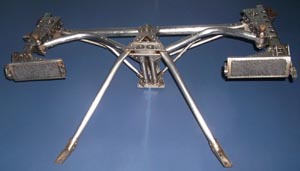
Welcome to the
Rudder Pedal page
Controls Home
Controls page
1 Throttles
Controls page
2 Rudder Pedals
Controls page
3 Control Grips
, yokes ,brake levers and columns
Controls page
4 Trim units
Controls page
5 Undercarriage
Controls page 6
Miscellaneous
Controls page
7 items
wanted and for reference


|
Click on
pictures to enlarge
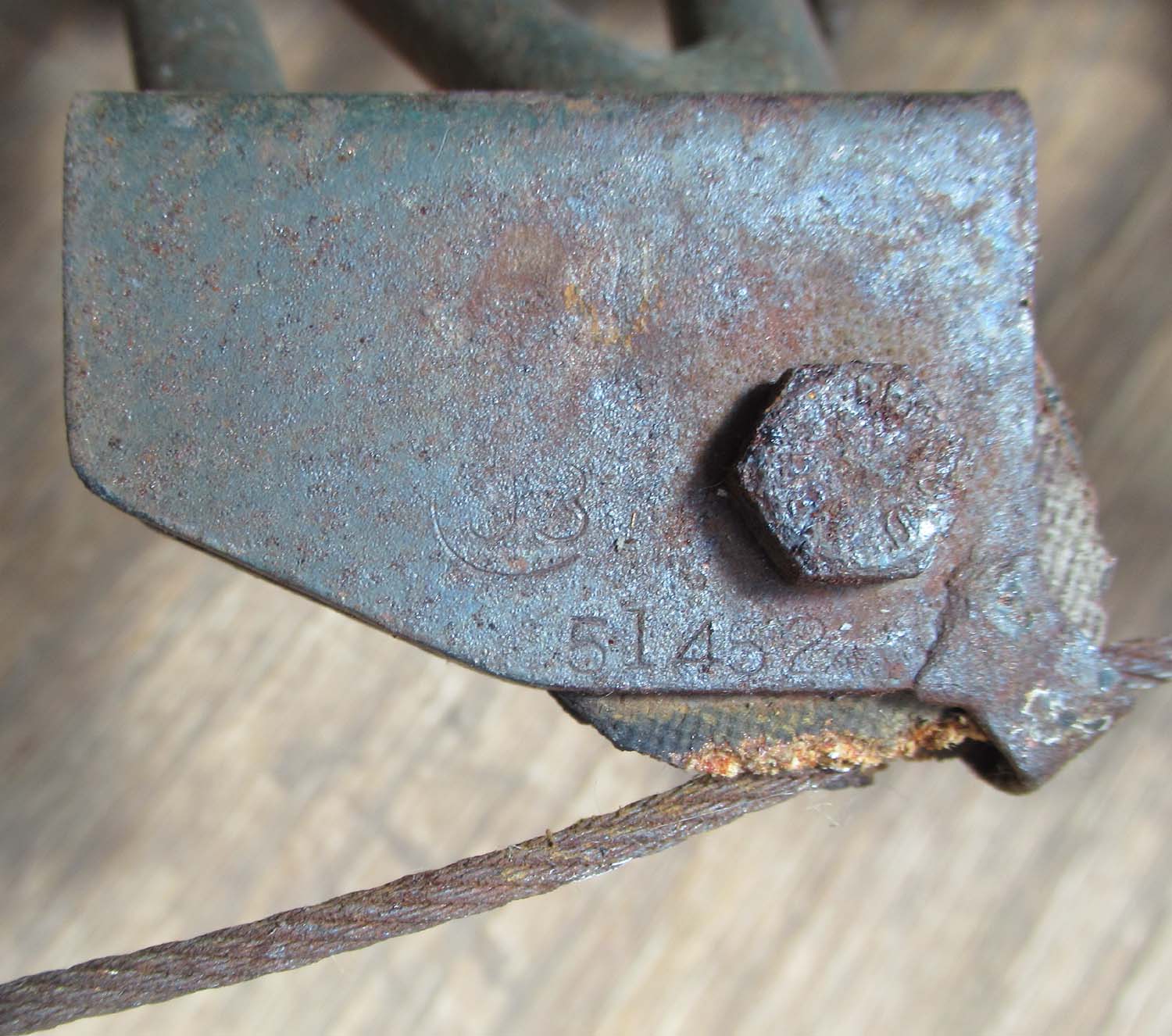
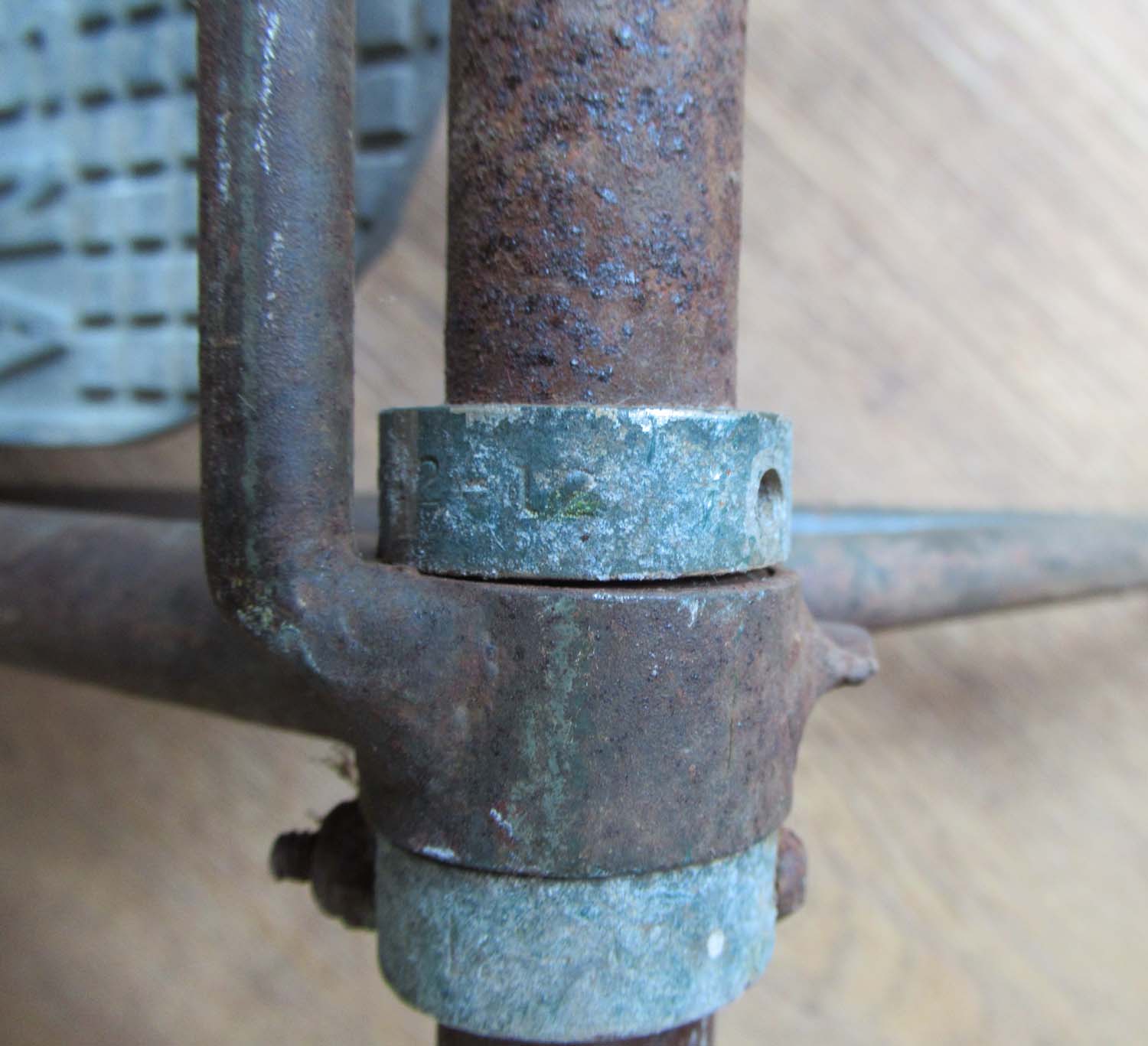
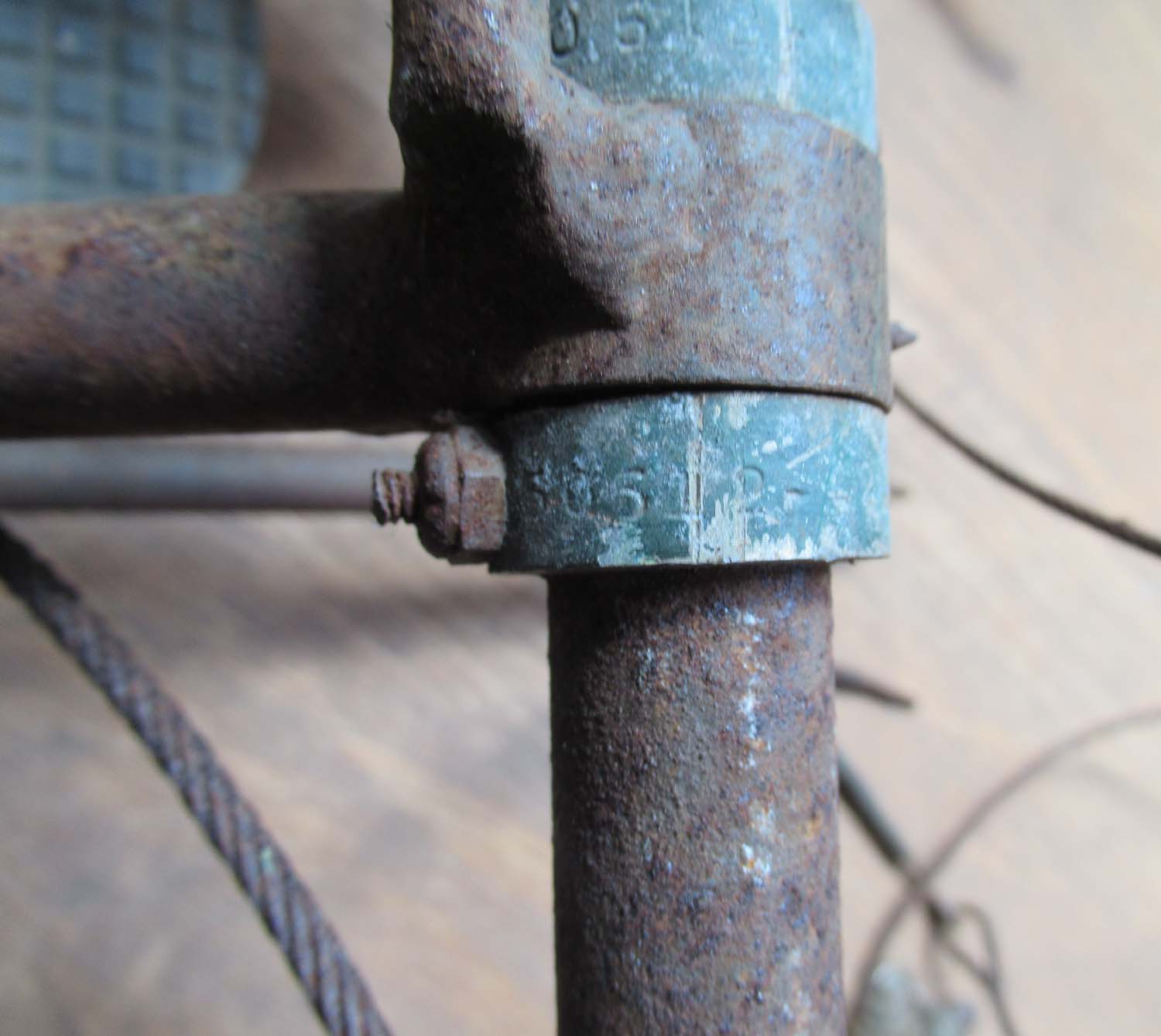
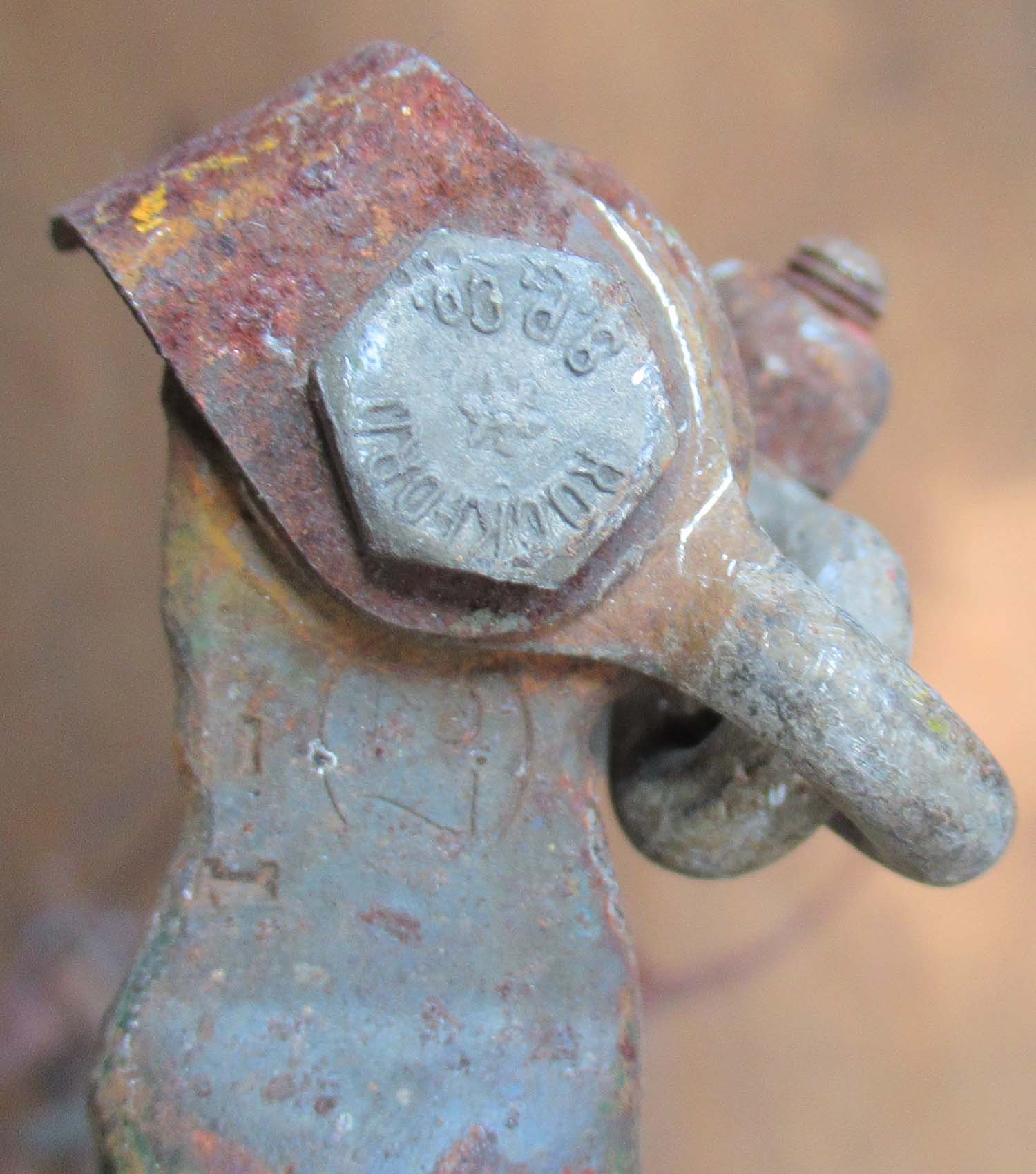
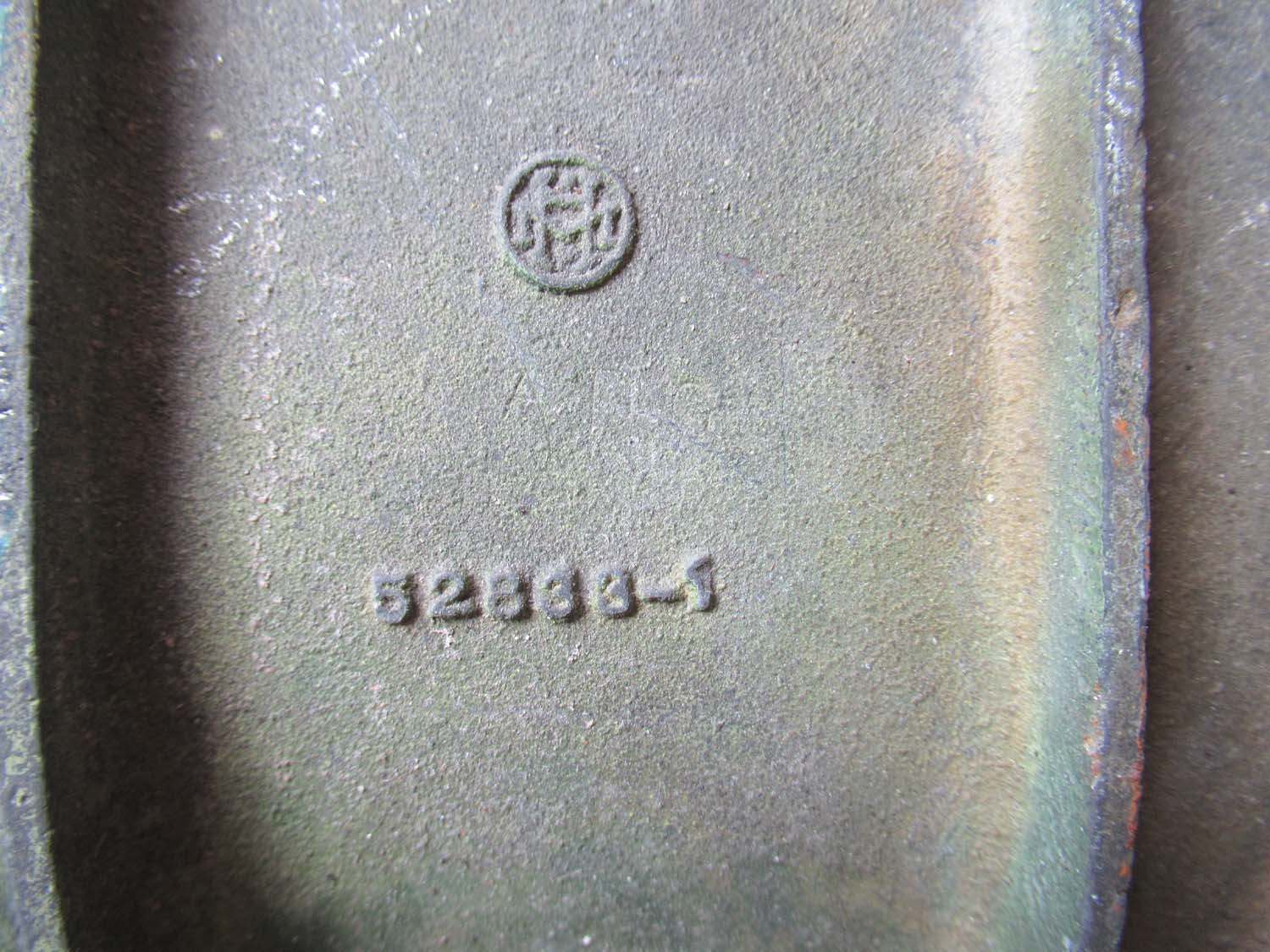
|
Cessna Crane T
50- Bobcat Pedals (Cont
pg 2 No 12)
Here is a stunning set of
rudder pedals from a Cessna T 50 known in the US as
the Bobcat or AT -17.
In 1939, the Cessna
Aircraft Company of Wichita, Kansas, introduced a light
twin-engine transport aircraft to the civilian market - the
T-50.
In 1940, the
RCAF was looking for another source of supply for
twin-engine trainers to supplement its Avro Ansons arriving
from England.
The Cessna T-50
fulfilled the RCAF’s need and a substantial order was placed
for them. This was the first large order Clyde Cessna’s
company ever received and provided the growth to become the
successful general aviation manufacturer we know today.
The Cessna Crane, as
the RCAF named it, started to equip BCATP airfields in
January 1941 and supply continued to mid-1943. Cessna Cranes
were used primarily to teach pilots to fly multi-engine
aircraft at five Service Flying Training Schools (SFTS) in
Western Canada.
They were also
employed in navigation training, communication and light
transport roles. The Crane continued in RCAF service until
1947, when many were sold off for civilian use as light
transport aircraft.
In the USAAF, the
aircraft was called the AT-17, UC-78 or Bobcat and was used
for pilot/navigator training and light transport duties
during World War II.
A total of 5,426
Cessna T-50s were produced; 4600 for the USAAF and 826 for
the RCAF.
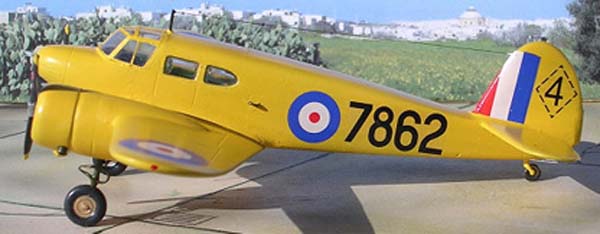
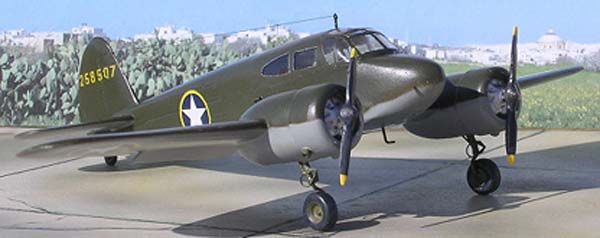
Shown above in both Canadian and US
livery.
Click on pictures to enlarge
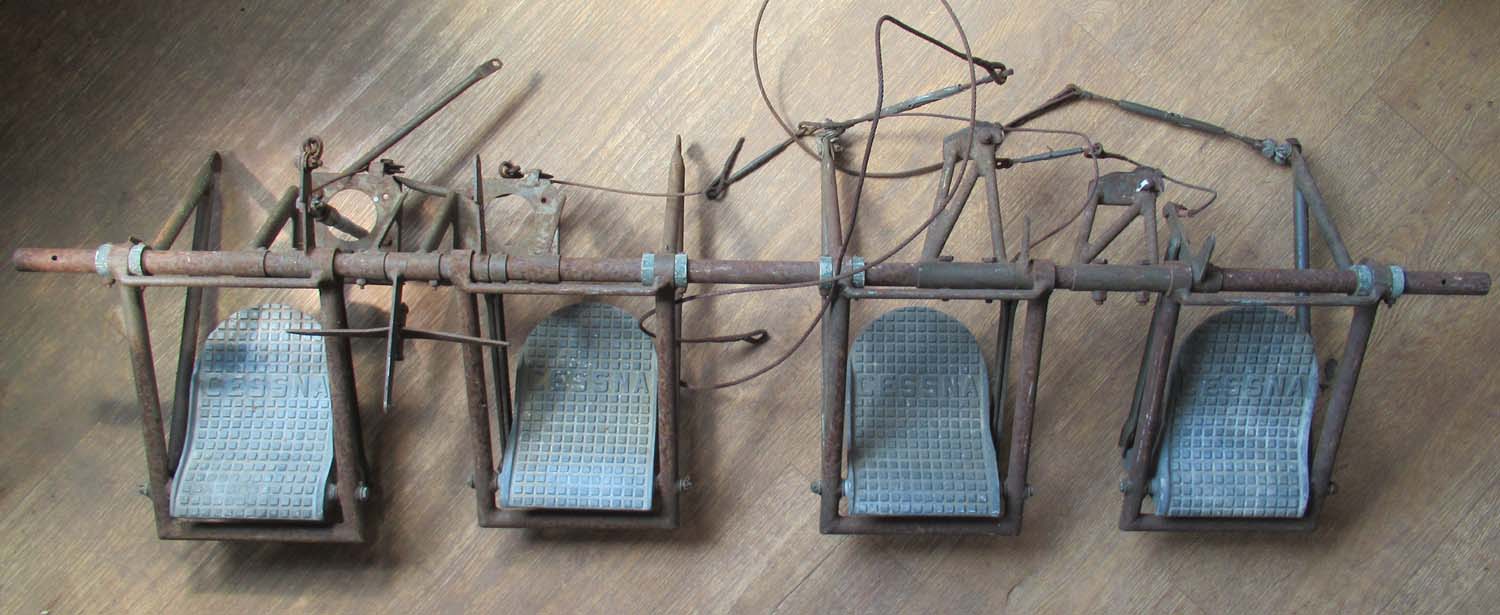
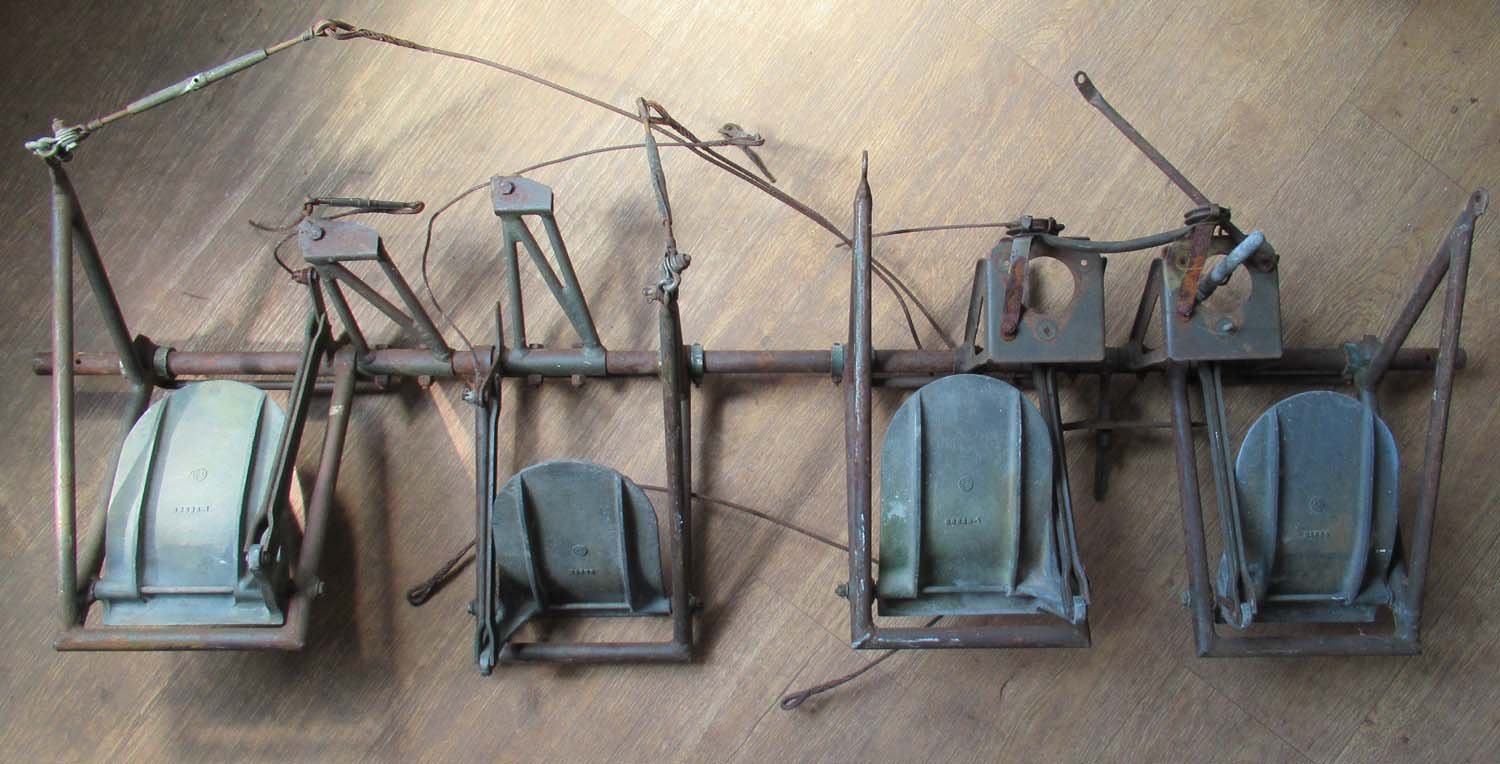
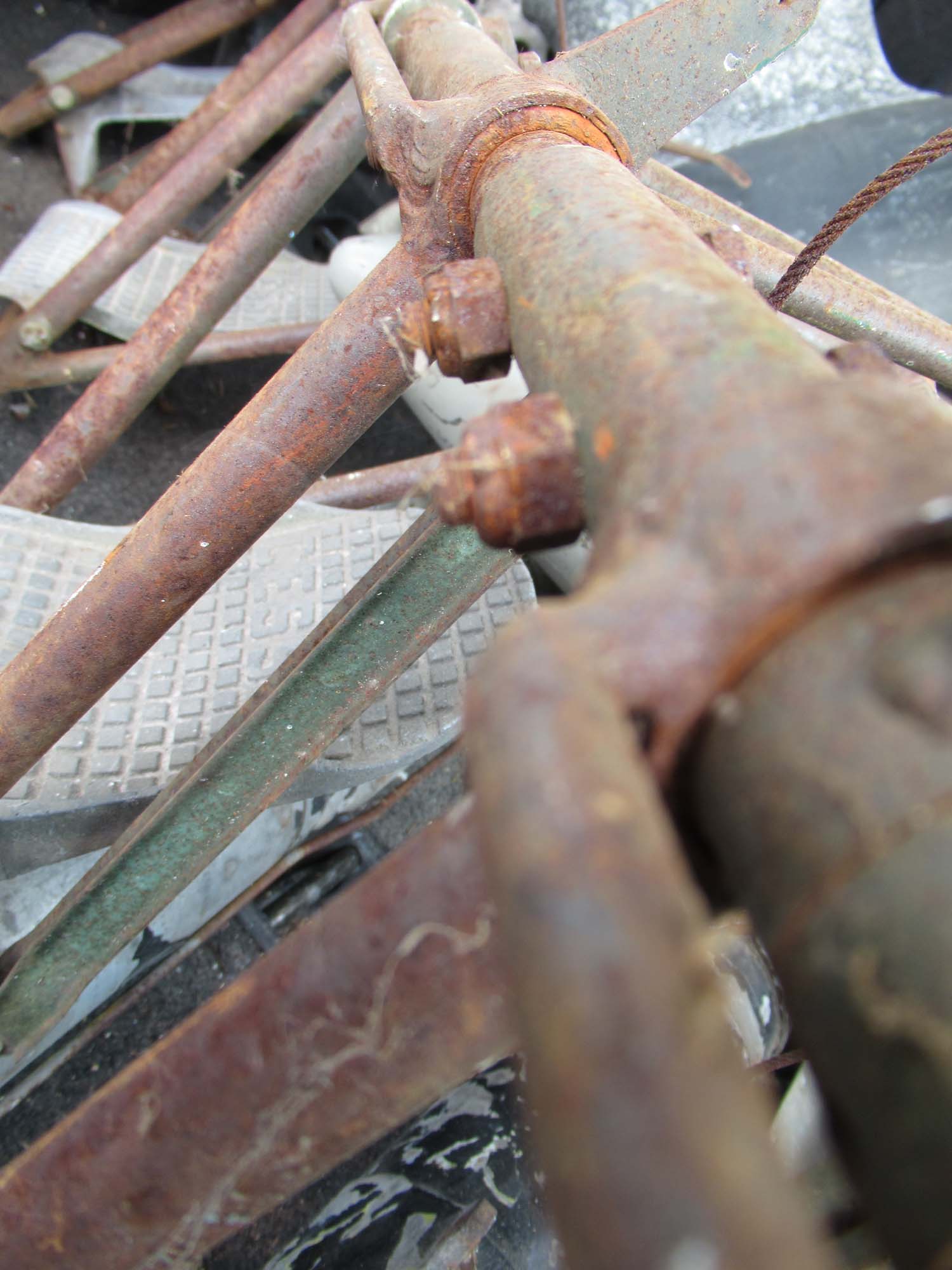
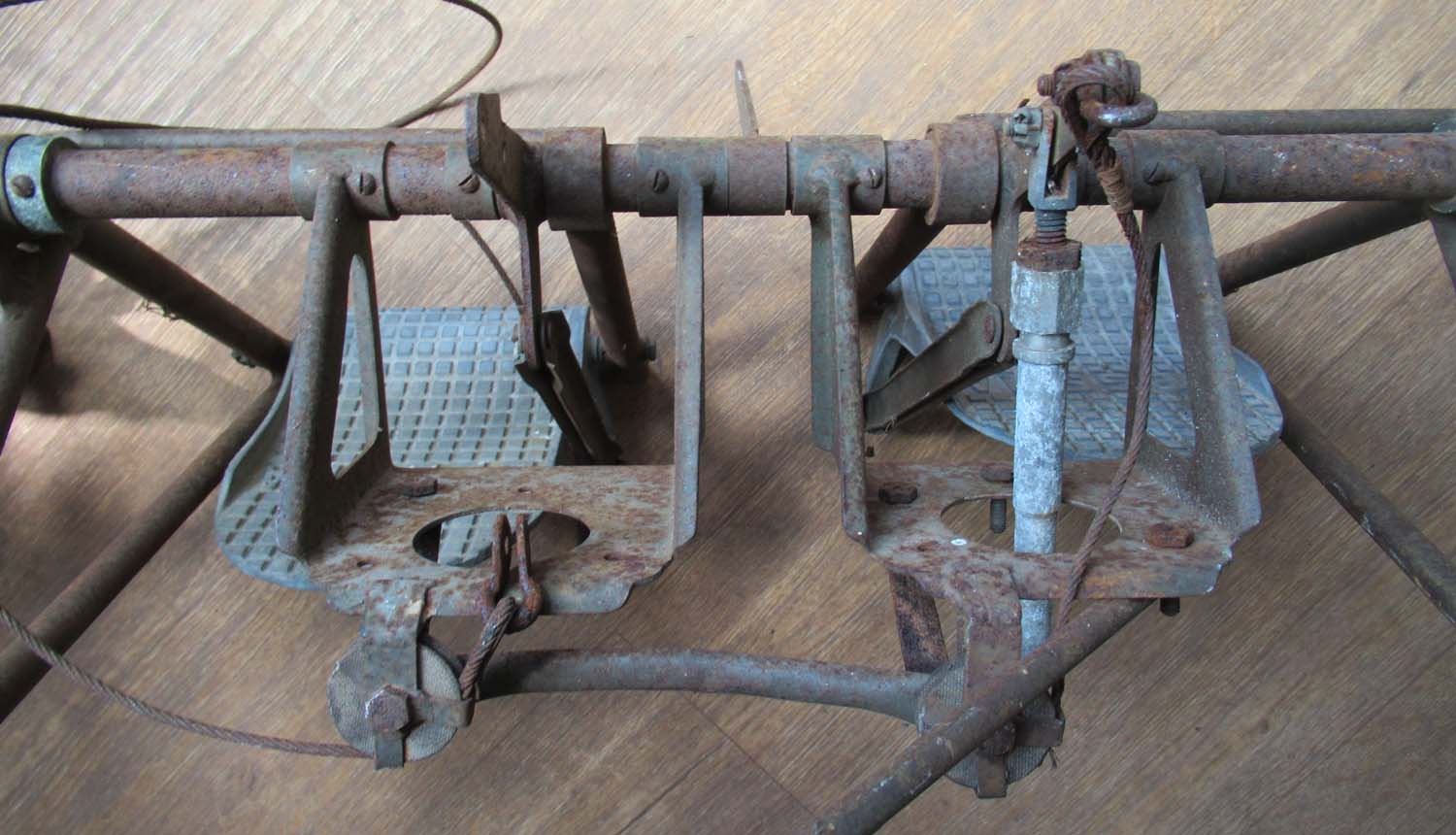
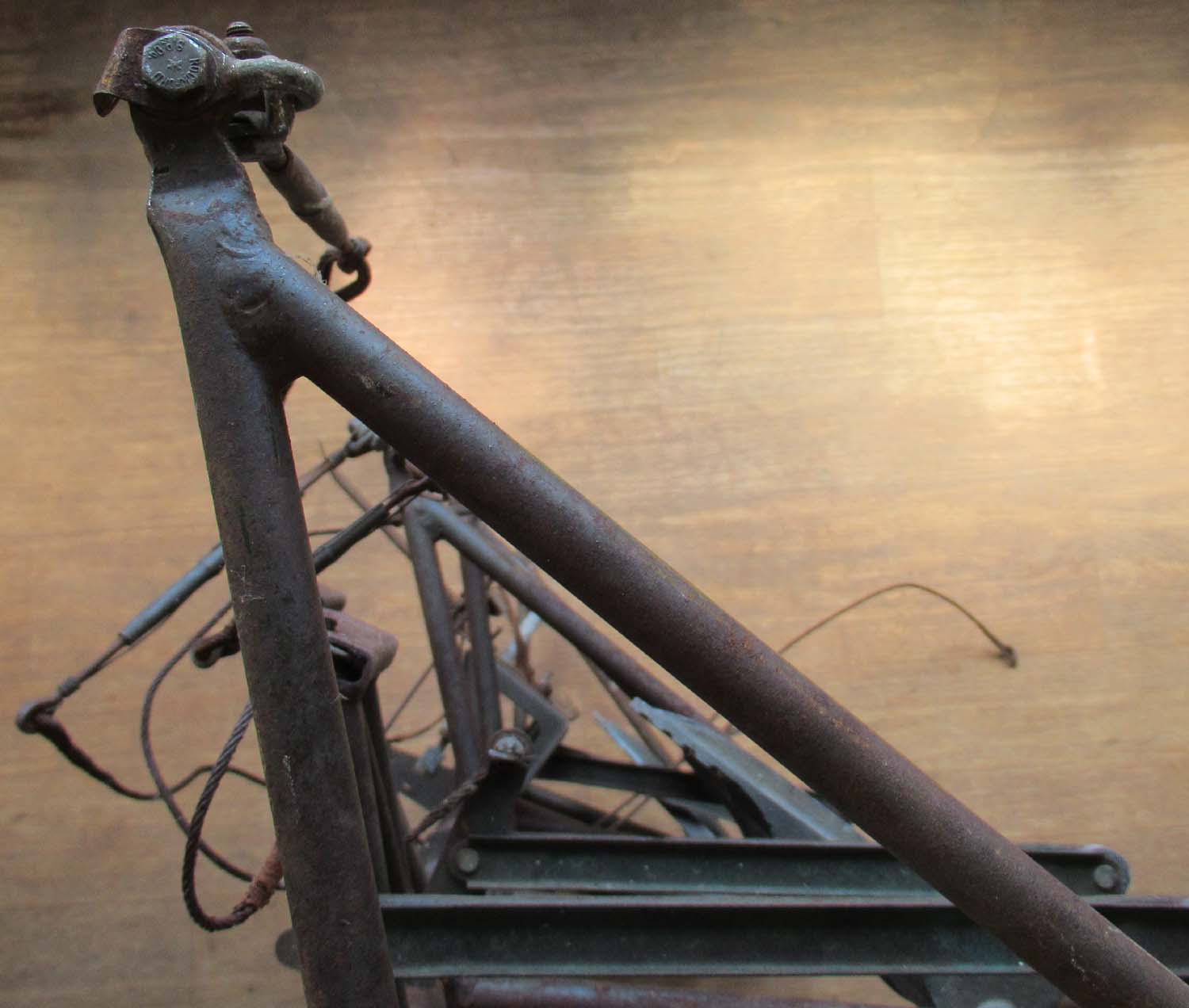
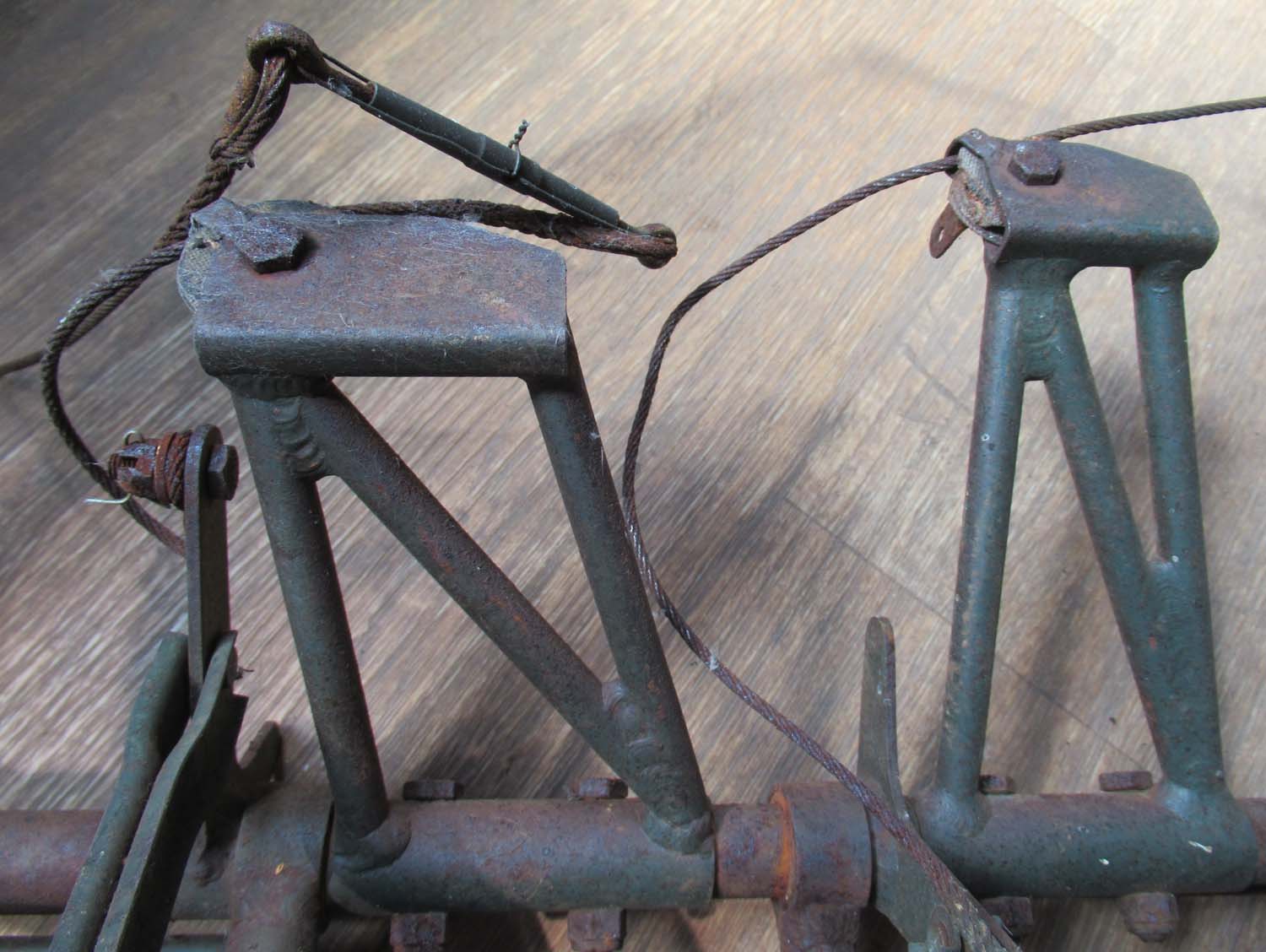
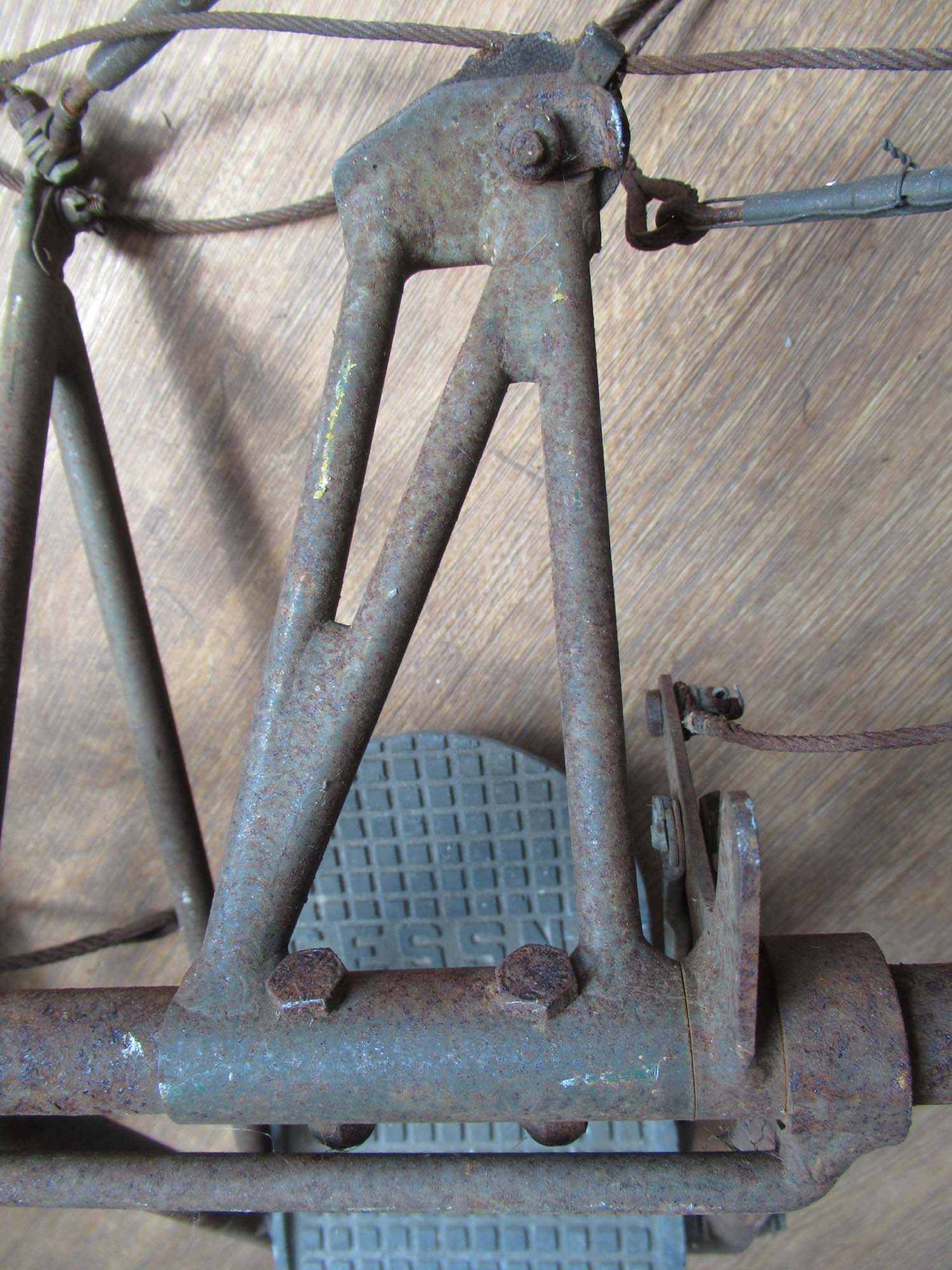
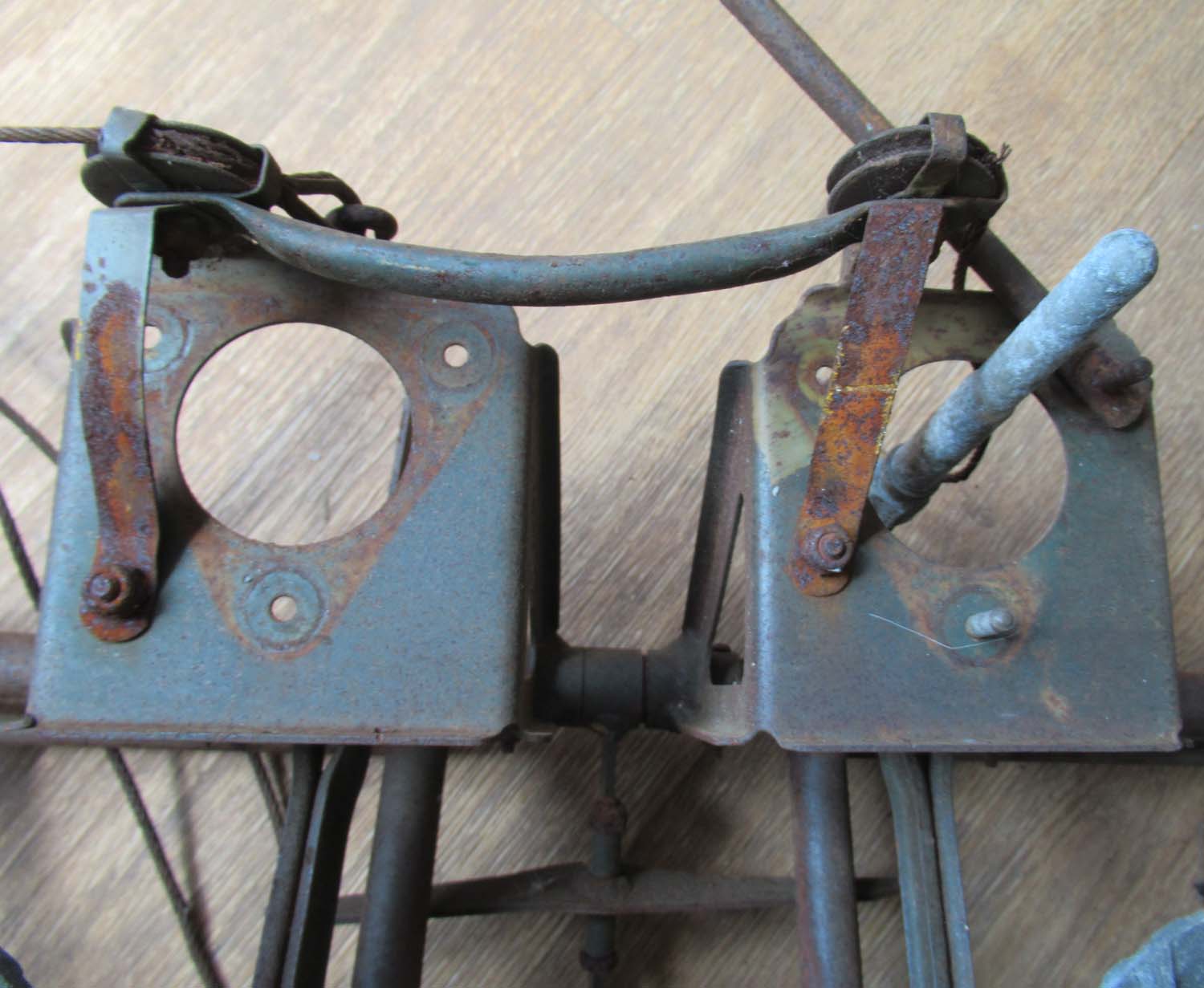
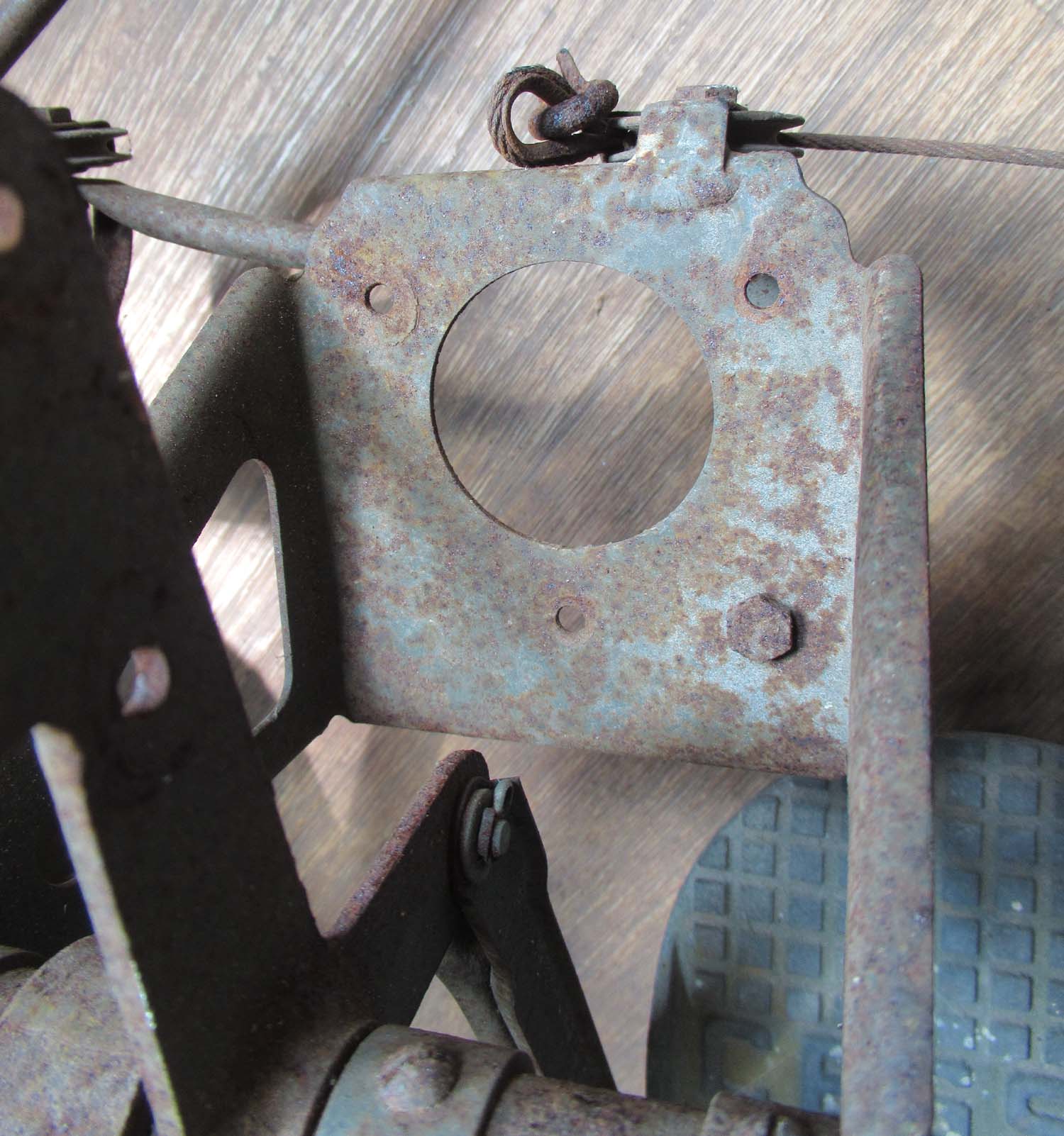
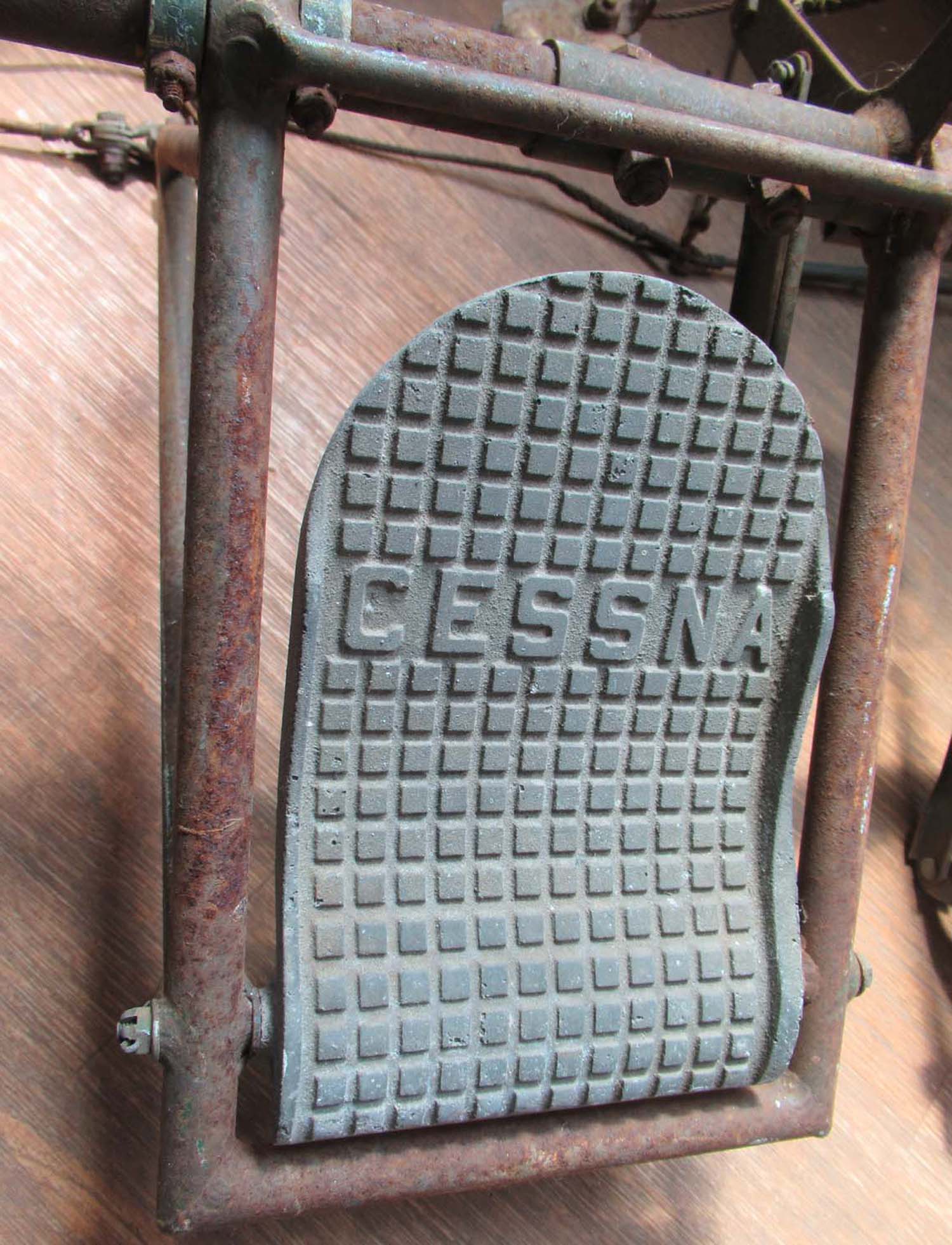
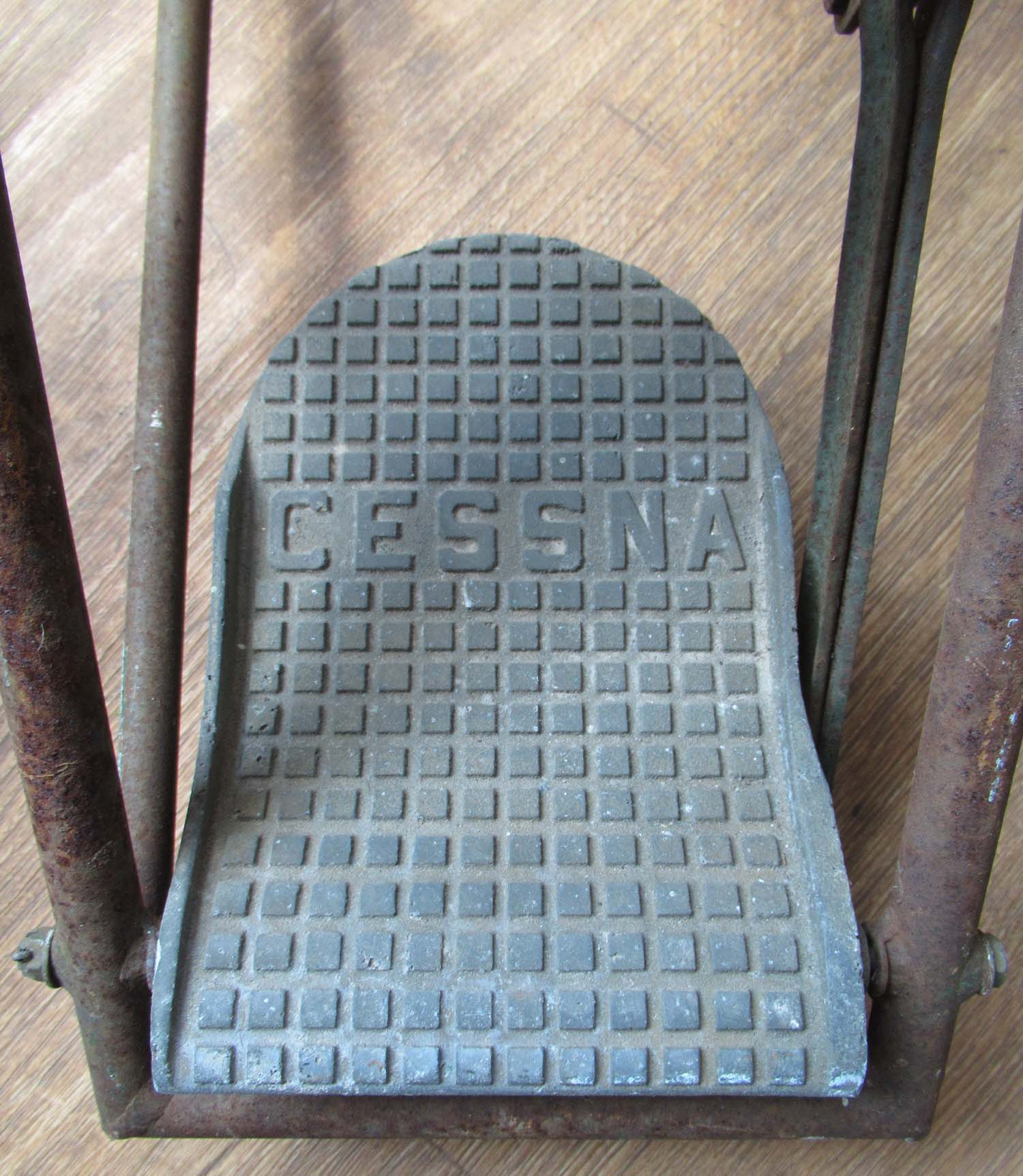
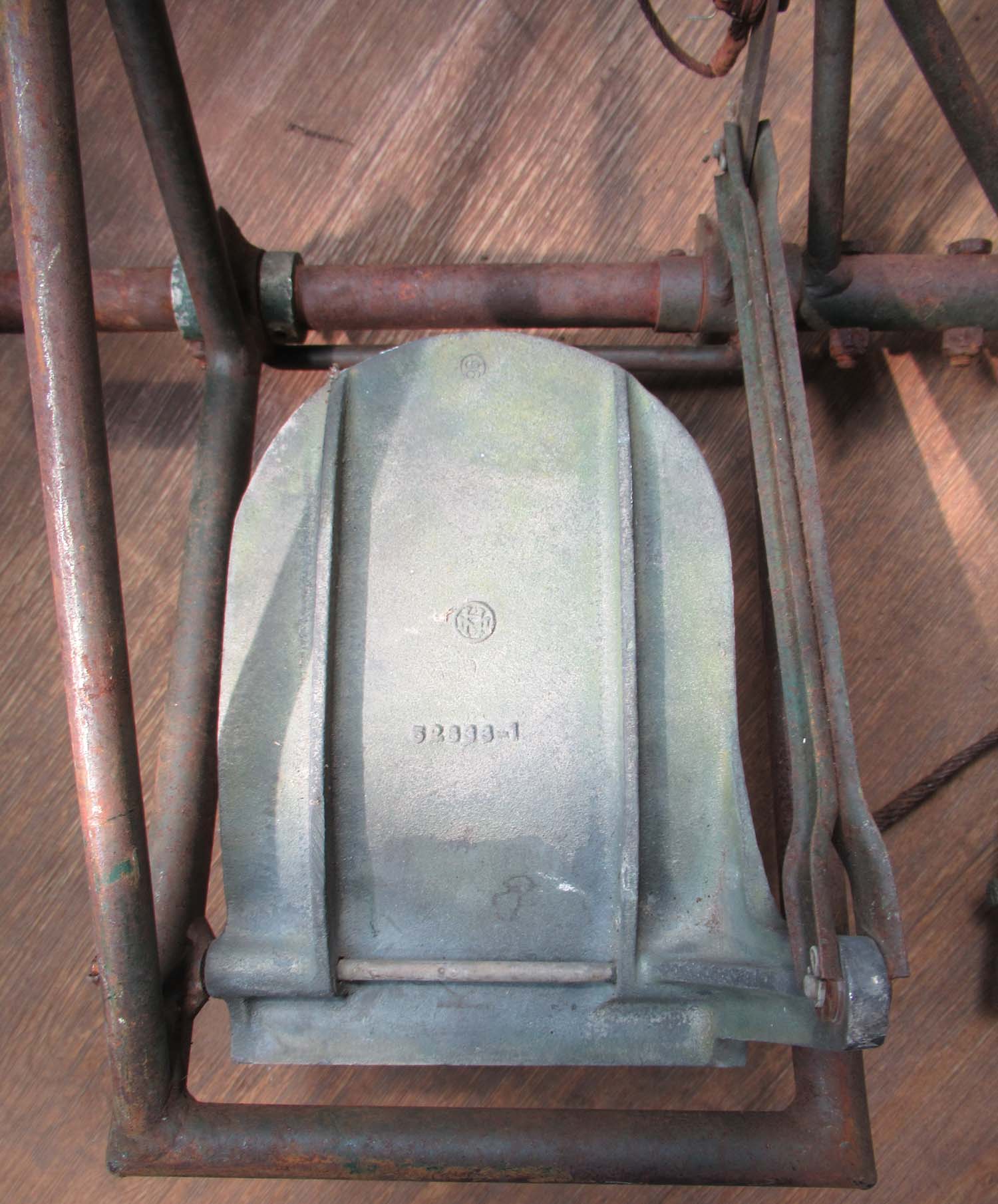
£1200


|
|
Click on the
pictures to enlarge
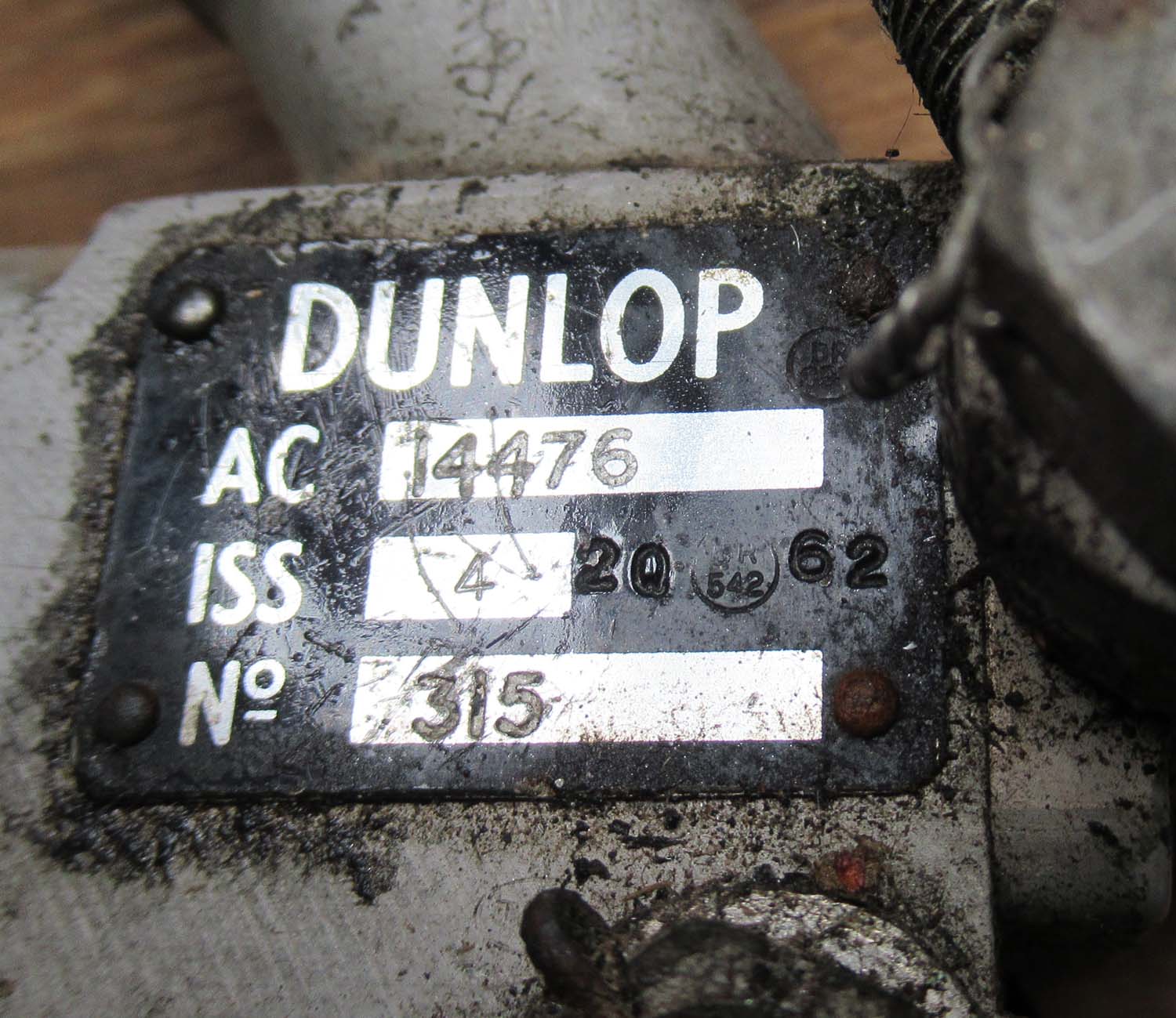


|
Piston Provost Rudder pedals (Cont
pg2 No 11)
This is a really nice set of rudder pedals. In good original condition
from a Piston Provost. The Provost entered service with the
RAF during 1953 and quickly proved to be more capable than
the preceding Prentice. It was a relatively successful
aircraft, being exported for multiple overseas operators.
Various models were developed, both armed and unarmed, to
meet with customer demands
AC 14476
AC 14478
A.G.S 1132/A
Click on the
pictures to enlarge
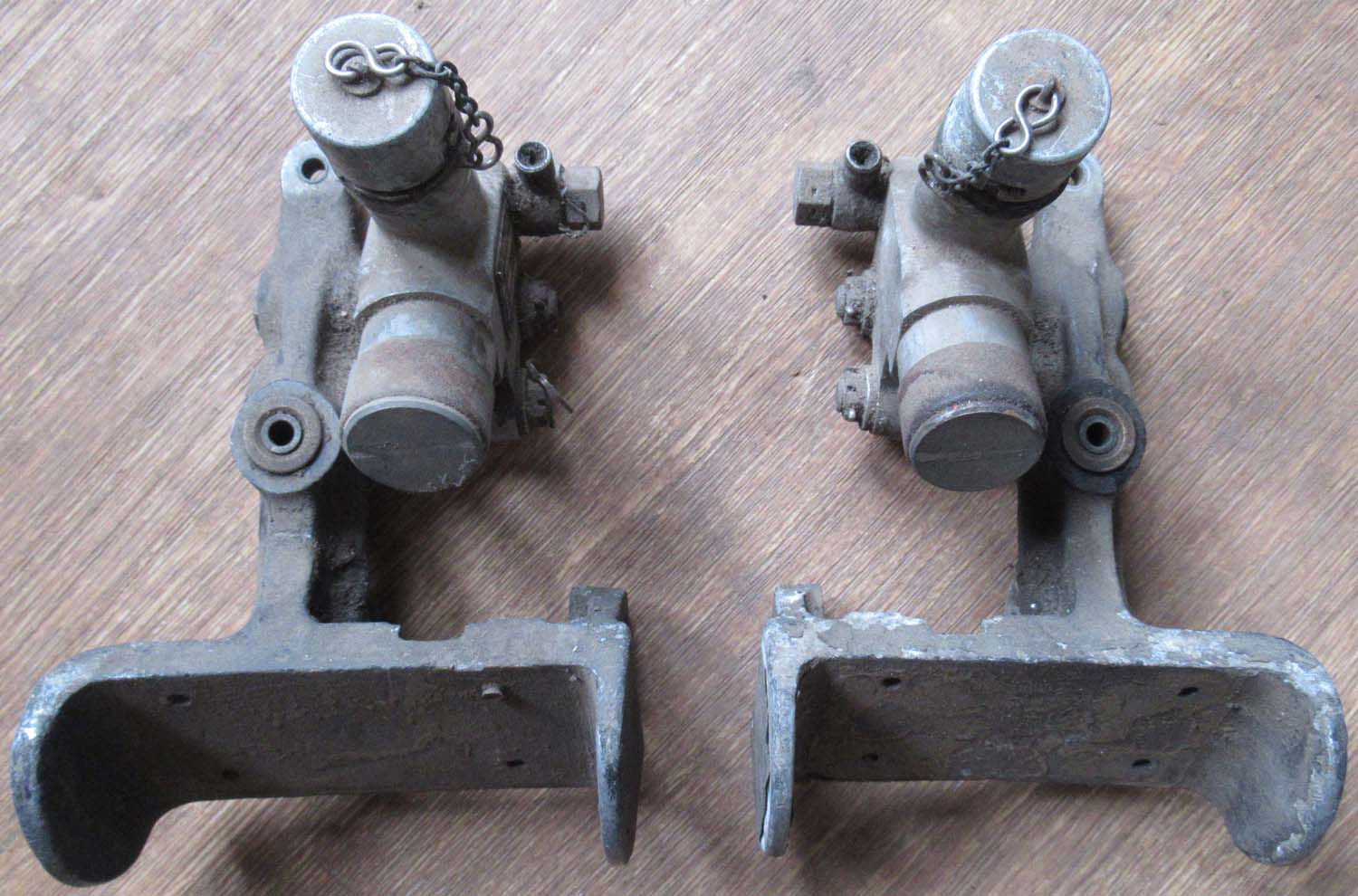 
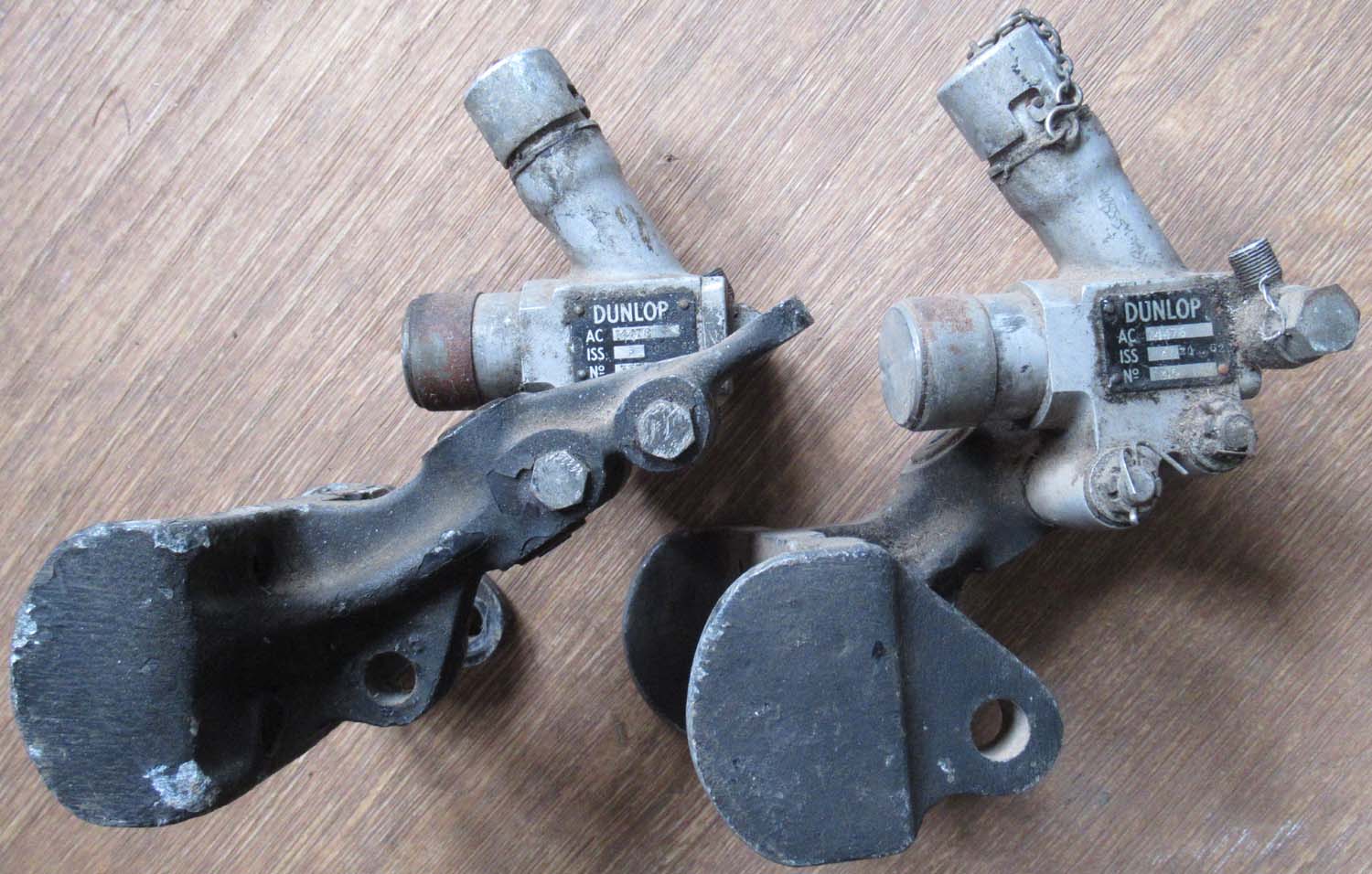

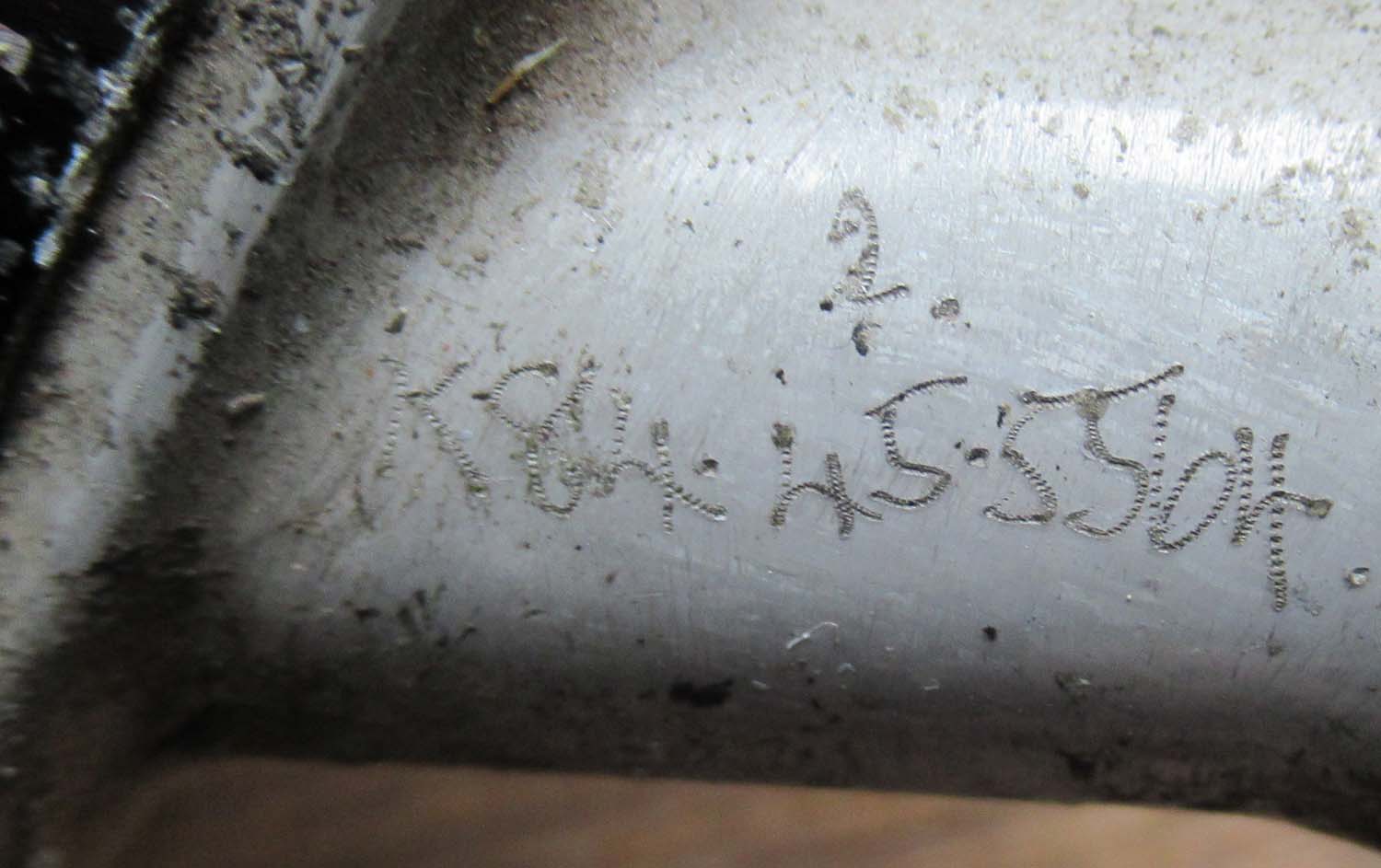
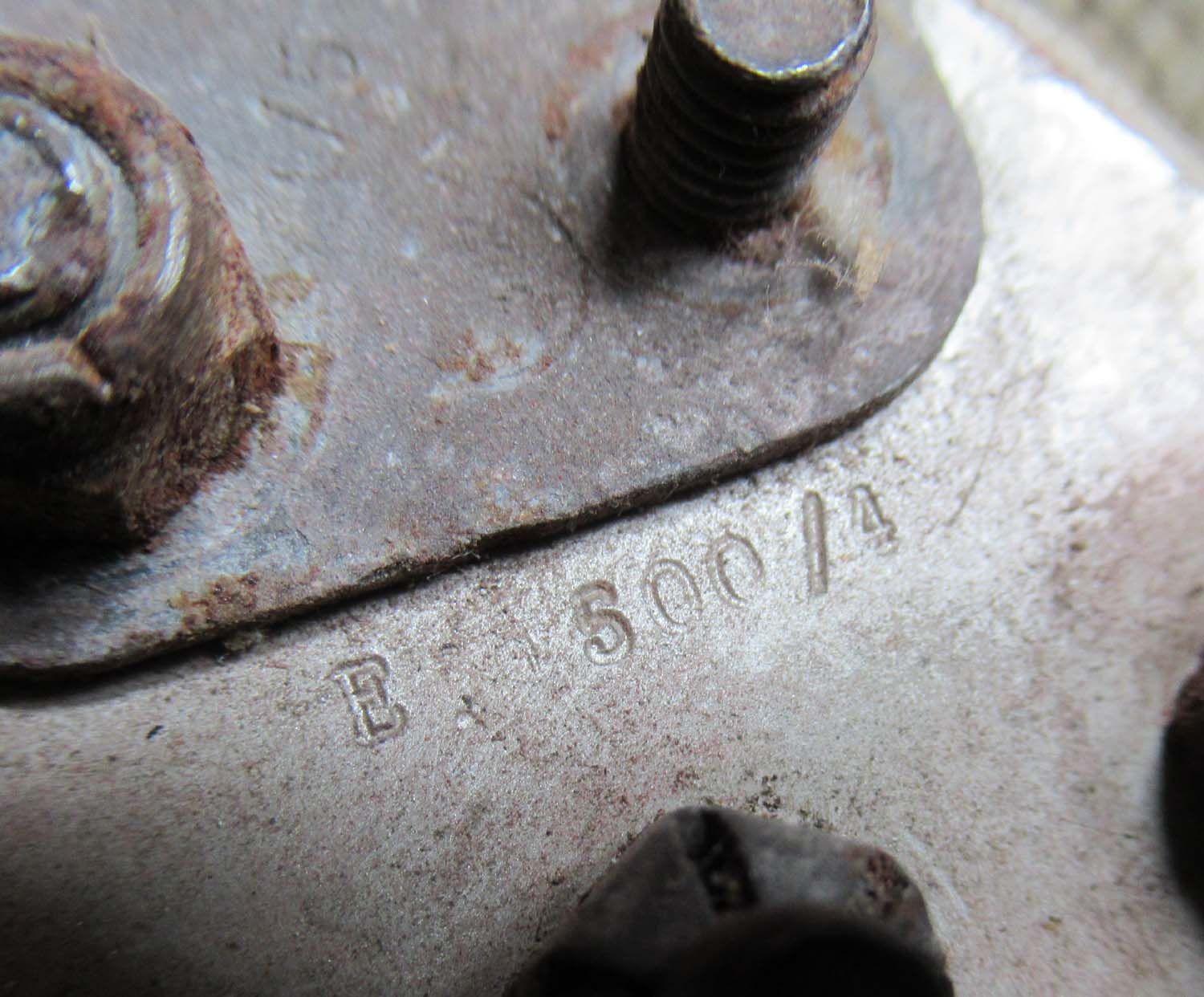
£275


|
|
£275


|
Hurricane Palmer rudder pedal strap (Cont pg2 No 10) This is a
single original Palmer rudder pedal strap as fitted the
Hurricane
and probably other fighters, it secured the pilots feet to the
rudder pedal the rubber is in good condition and still usable.
Click on the
pictures to enlarge


|
|
Click on the
pictures to enlarge
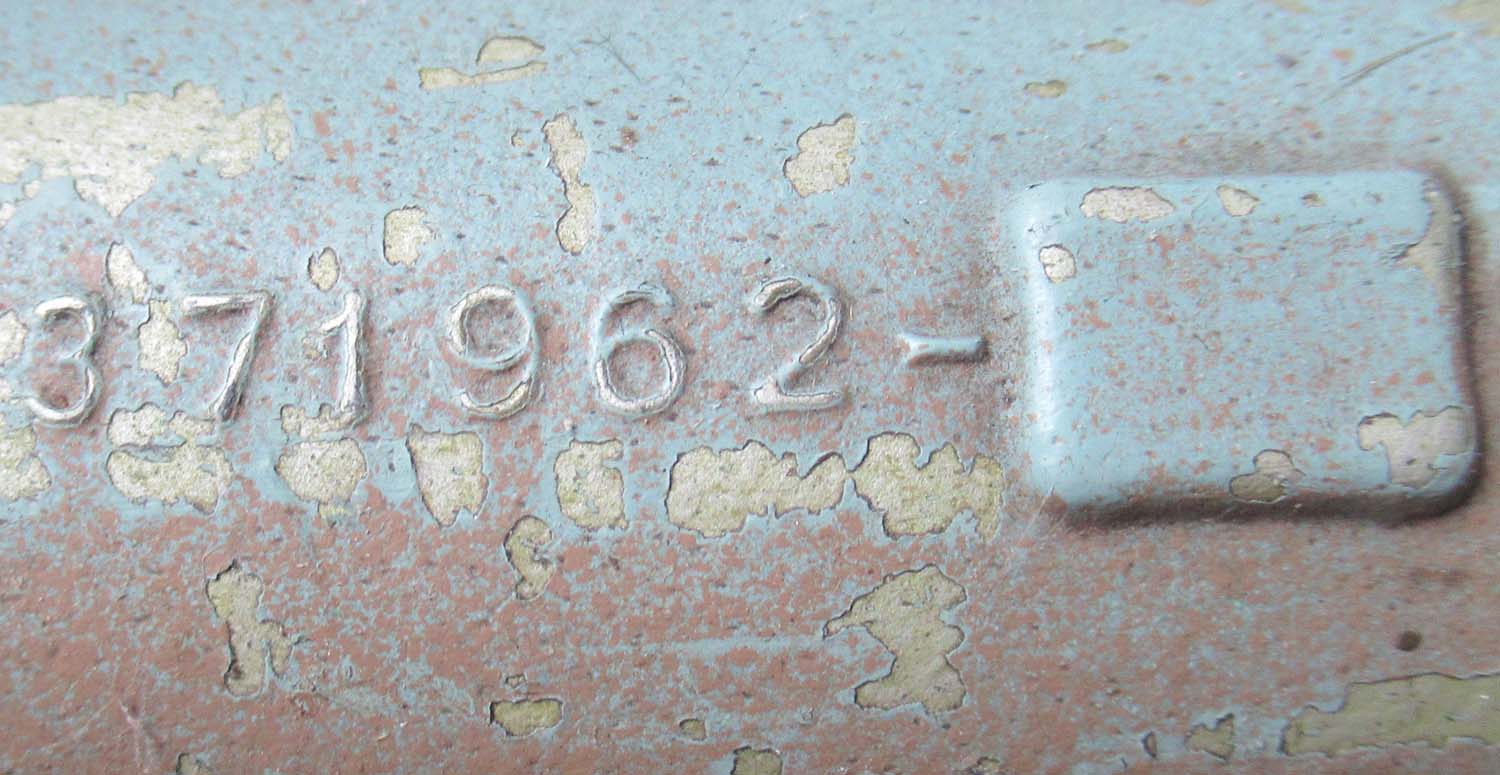
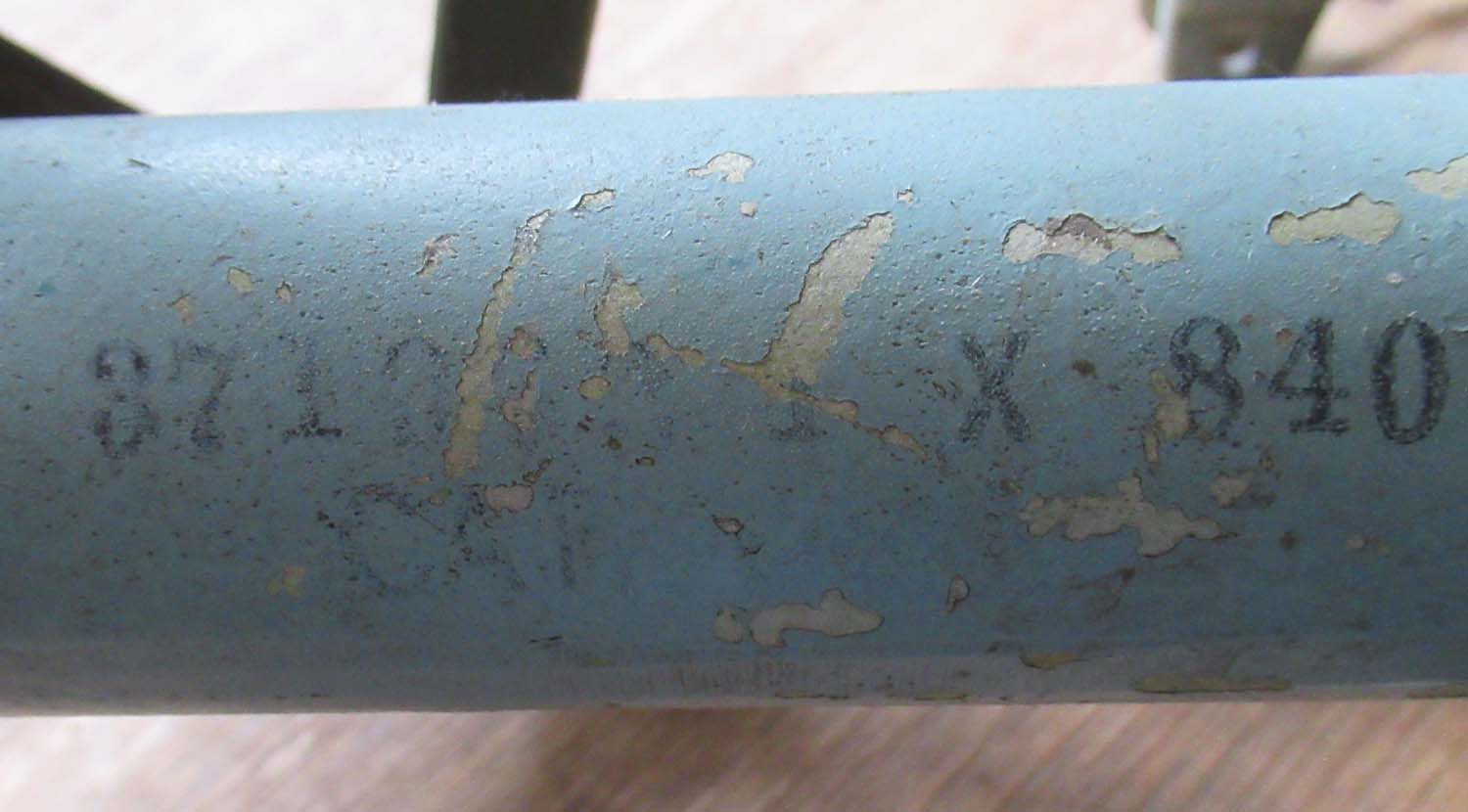

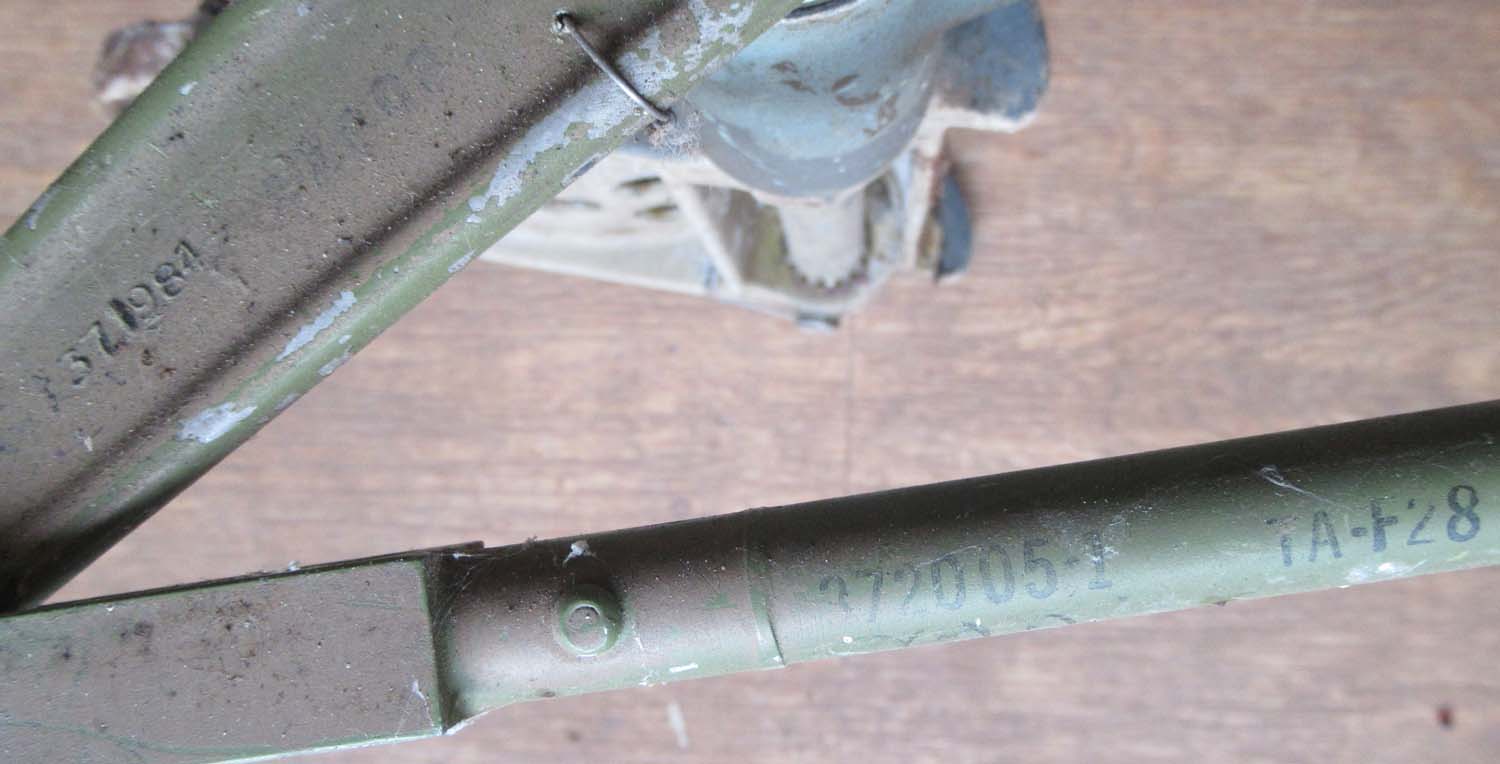
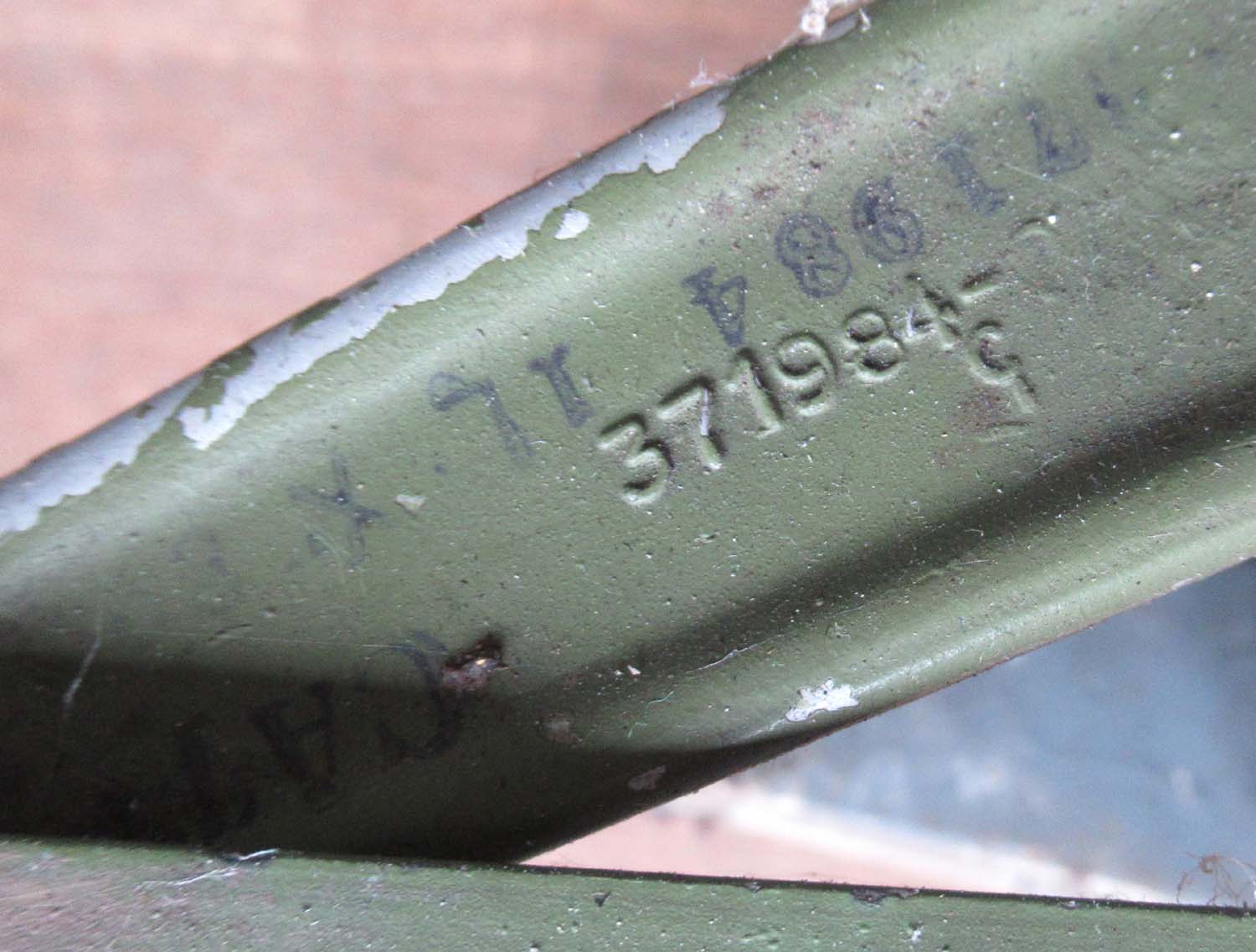
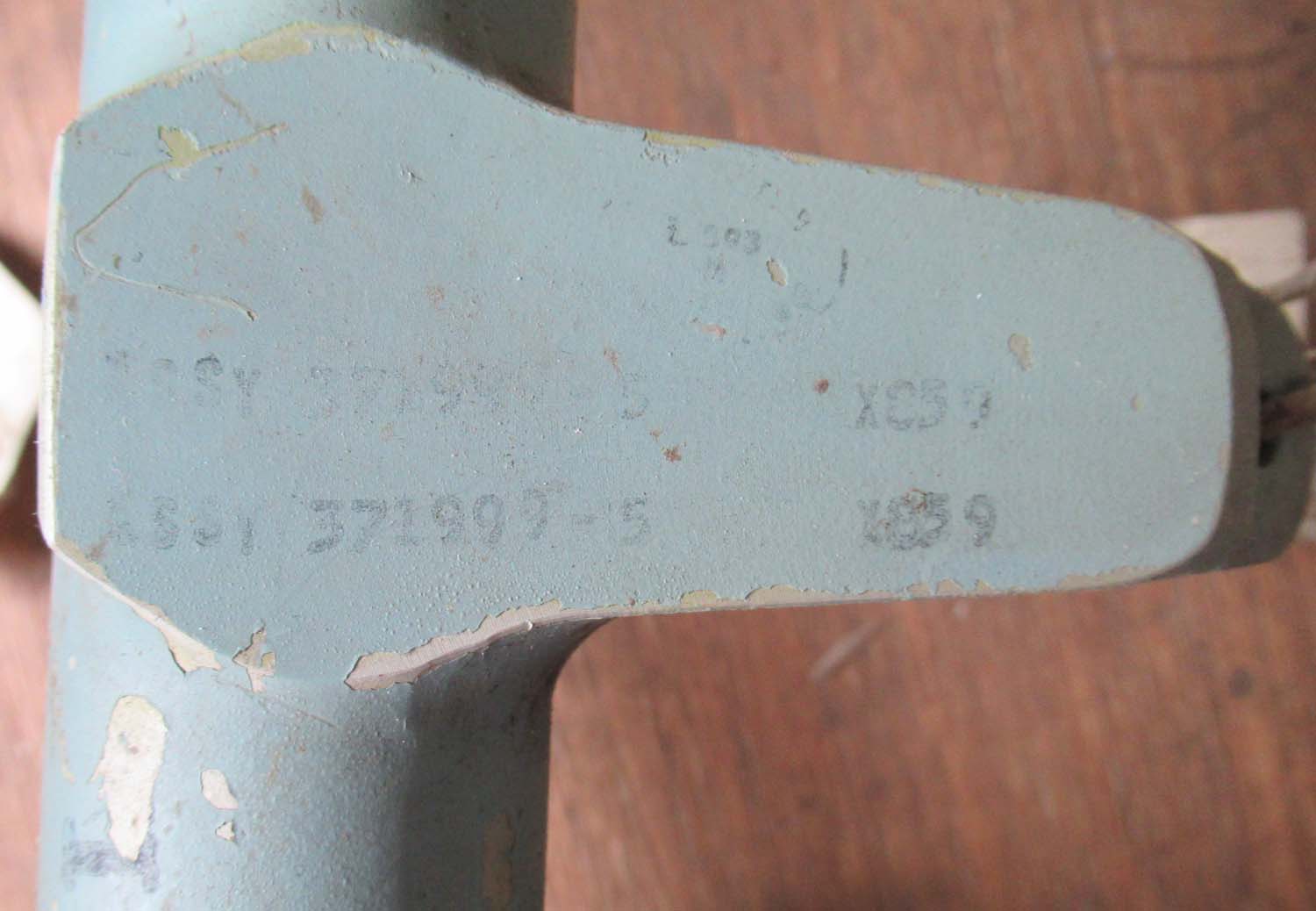 |
RAF Hercules Rudder Pedals (Cont pg2 No 9) This is a
set of rudder pedals for a
RAF Hercules, it came from
Aircraft XV 302 in July 2003
The Lockheed
C-130 Hercules is a four-engine turboprop military transport
aircraft designed and built originally by Lockheed, now Lockheed
Martin. Capable of using unprepared runways for takeoffs and
landings, the C-130 was originally designed as a troop, medivac,
and cargo transport aircraft. The versatile airframe has found
uses in a variety of other roles, including as a gunship
(AC-130), for airborne assault, search and rescue, scientific
research support, weather reconnaissance, aerial refuelling,
maritime patrol, and aerial fire fighting. It is now the main
tactical airlifter for many military forces worldwide. Over
forty models and variants of the Hercules, including a civilian
one marketed as Lockheed L-100, operate in more than sixty
nations.
The C-130
entered service with the U.S. in the 1950s, followed by
Australia and others. During its years of service, the Hercules
family has participated in numerous military, civilian and
humanitarian aid operations
Lockheed C-130
Hercules XV302
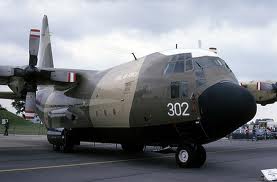
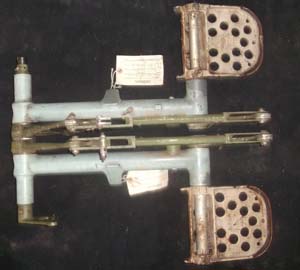
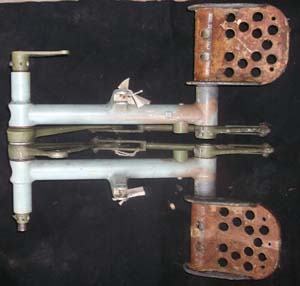
Click on the
pictures to enlarge
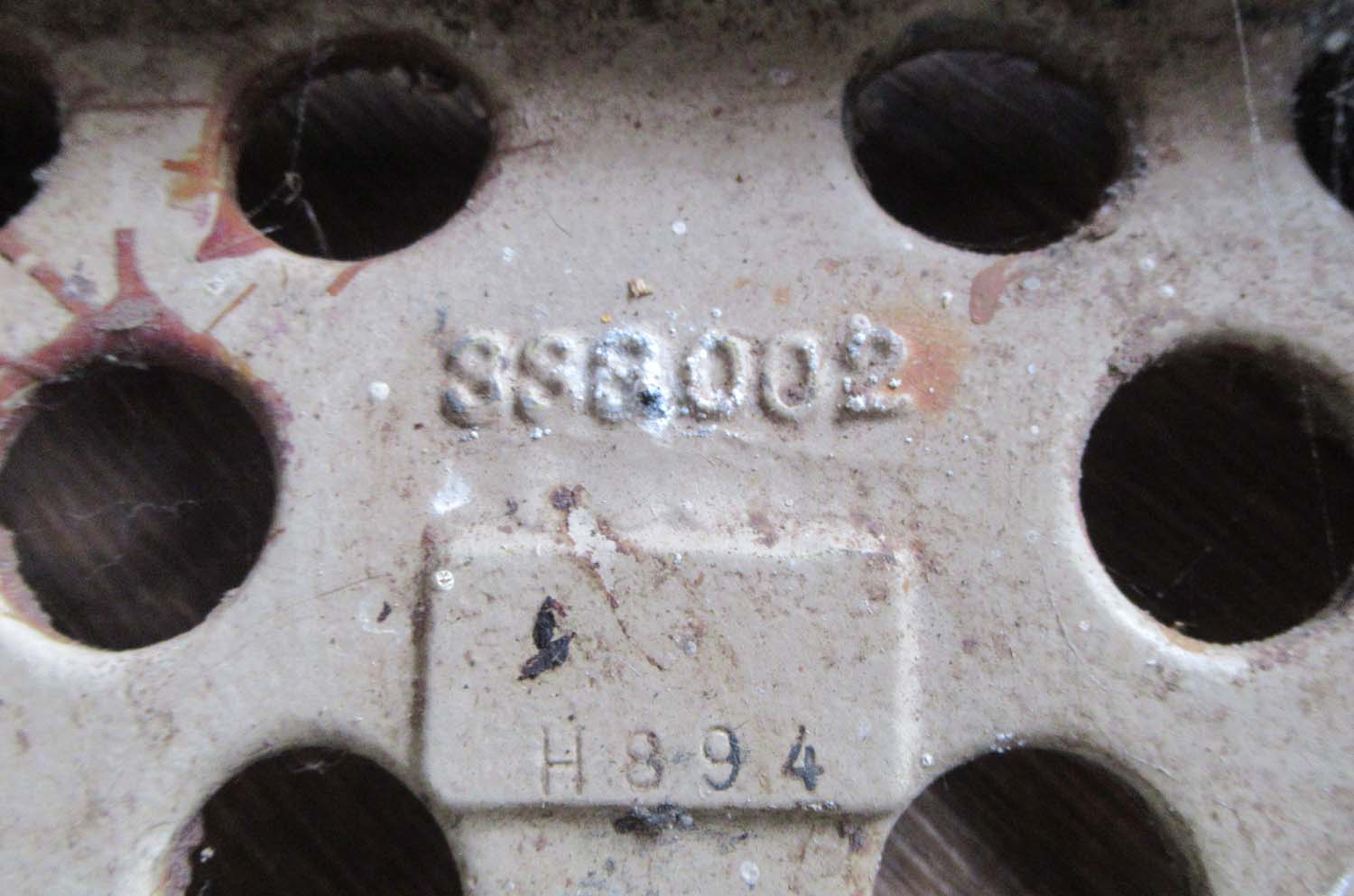
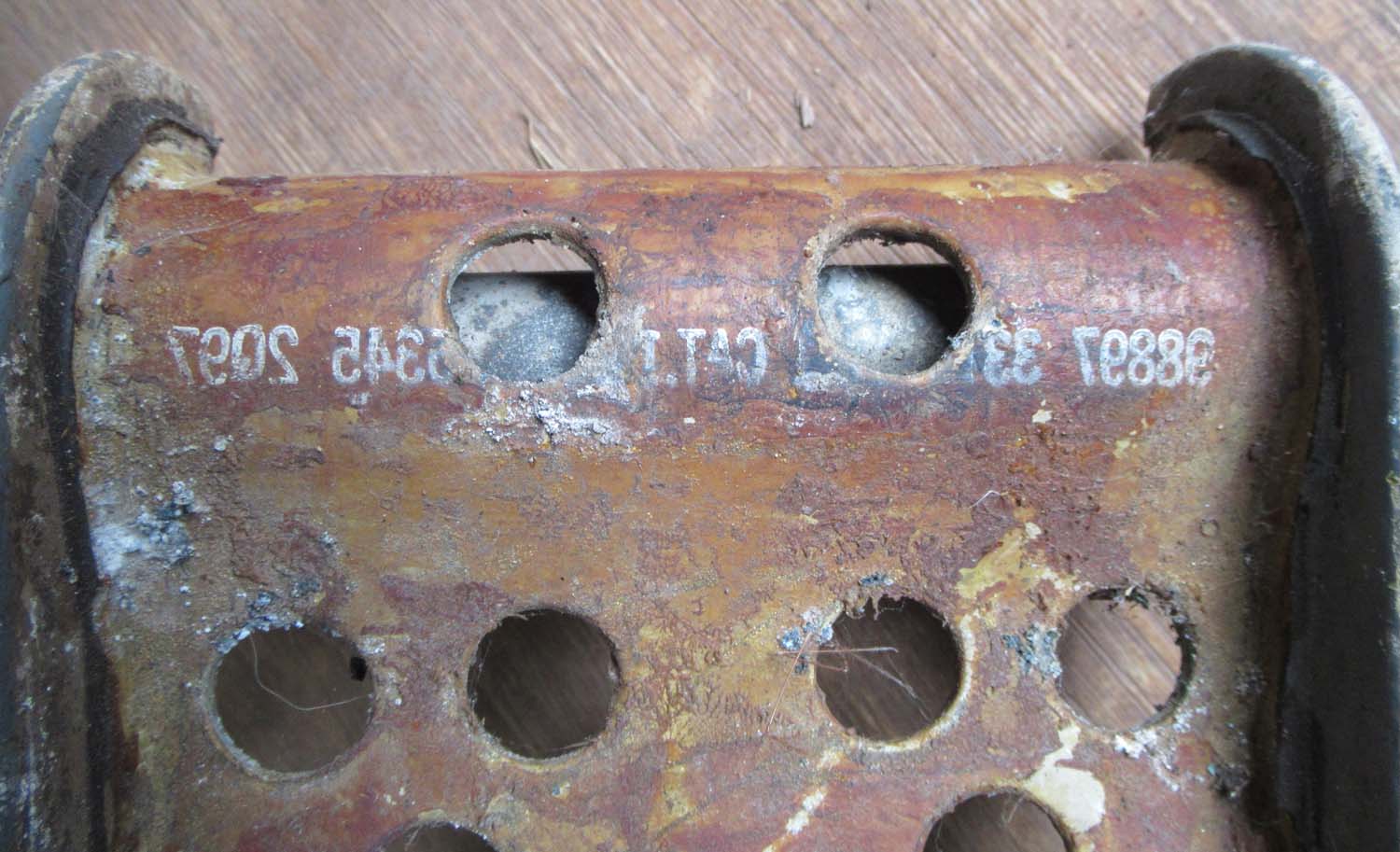
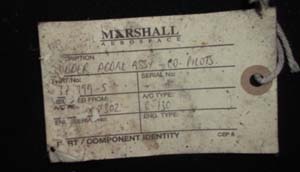
£595


|
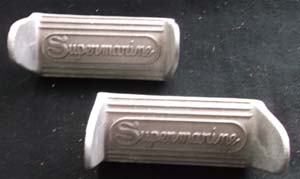
Click on the
pictures to enlarge them.
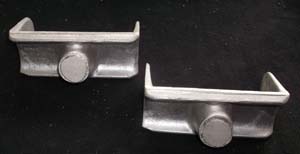
|
A Pair of MK 1 Spitfire Rudder Pedals
(Cont pg2 No 8)
Quality recast in aluminium Mk 1 Spitfire rudder
pedals they carry the part number 30033/447/9.
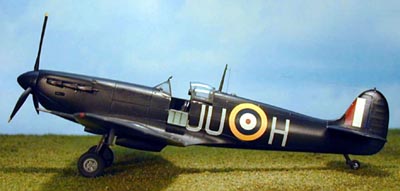
Please note these
are NOT suitable for flying use.
£250


|
|
Click on the
pictures to enlarge


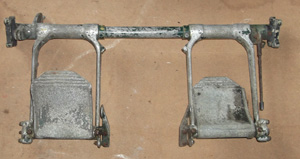
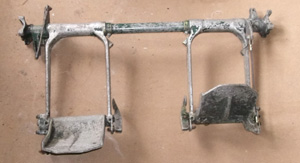 |
Boeing B17 Flying Fortress rudder pedals (Cont
pg2 No 7)
This is a really nice set of B17 Rudder pedals complete and
moving freely. In very nice original condition.
Click on the
pictures to enlarge


Reserved |
|
Click on the
pictures to enlarge

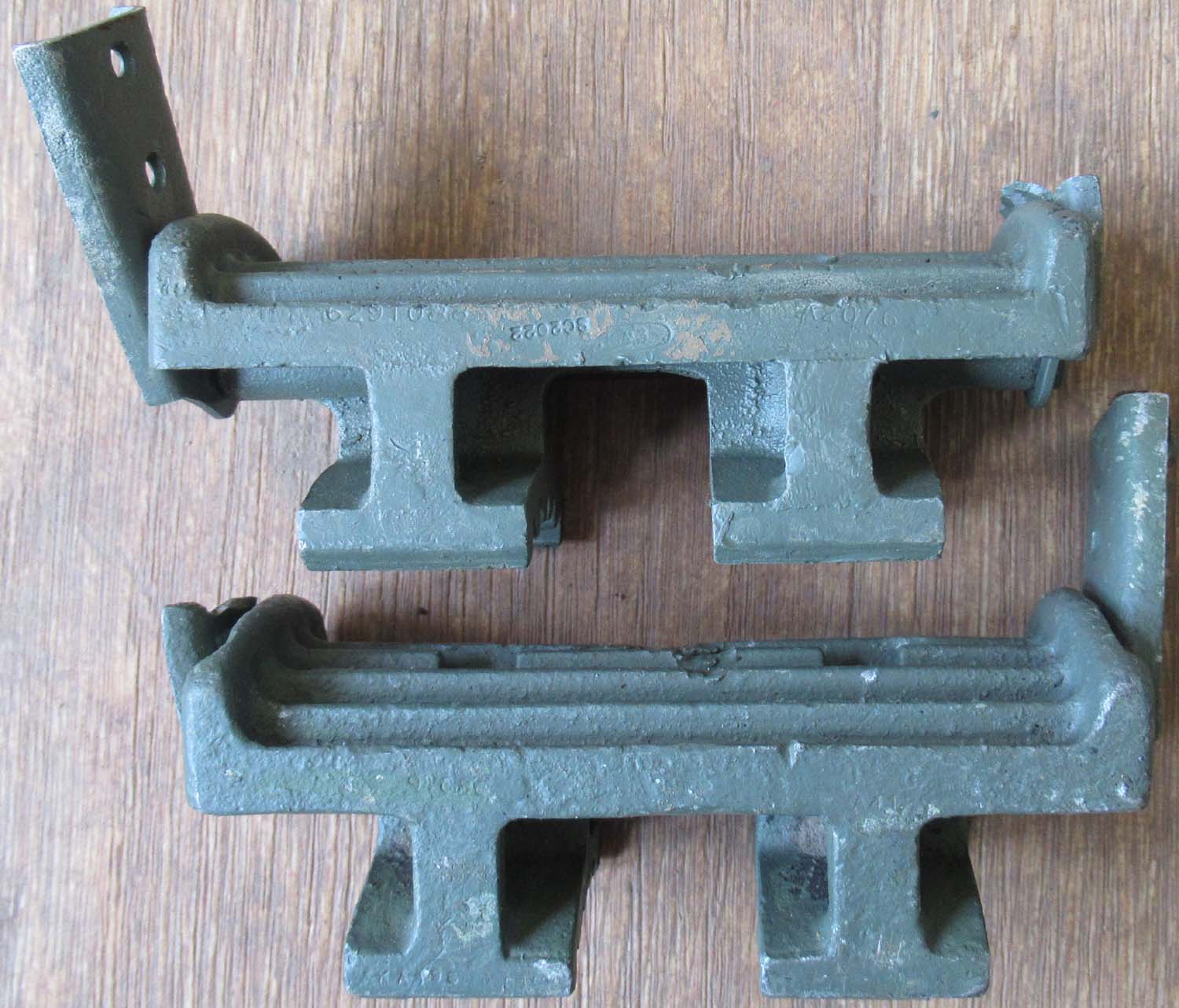
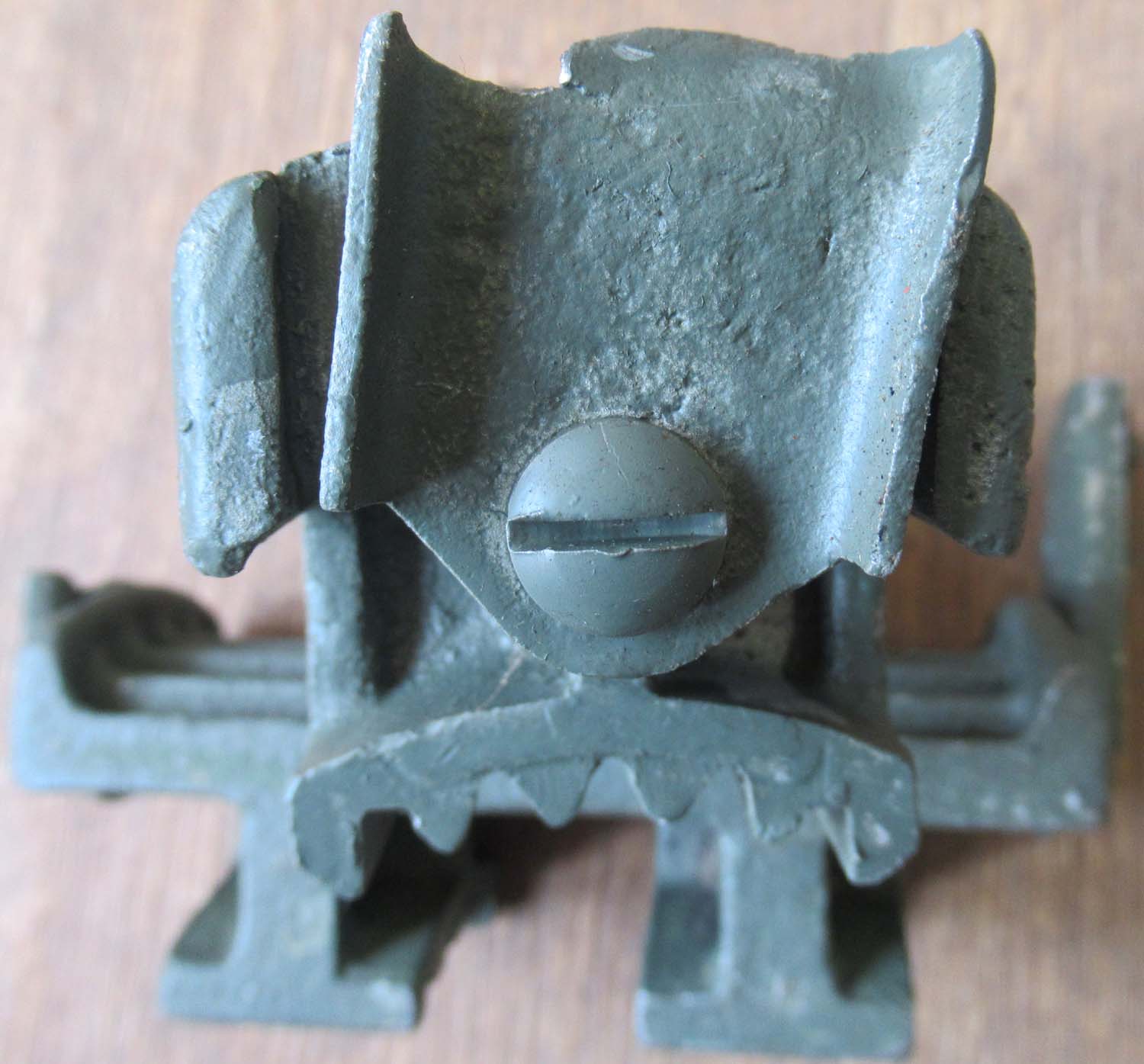 |
Pedal modification for Stirling
Rudder Pedals
(Cont pg2
No 6)
He we have a very rare set of
top rudder pedals for the Stirling. These were introduced as
a modification in a similar way to the improvements in the
Spitfire rudder pedals although for a different purpose.
They simply clamp on to the existing pedals to
help out the more vertically challenged pilots.
The Short Stirling was the RAF's
first four engine bomber of the second World War. It took a
major part in the strategic offensive until 1943, then it
was switched to transport duties.
J78M
SC2022 A2076 6291088
Click on the
pictures to enlarge

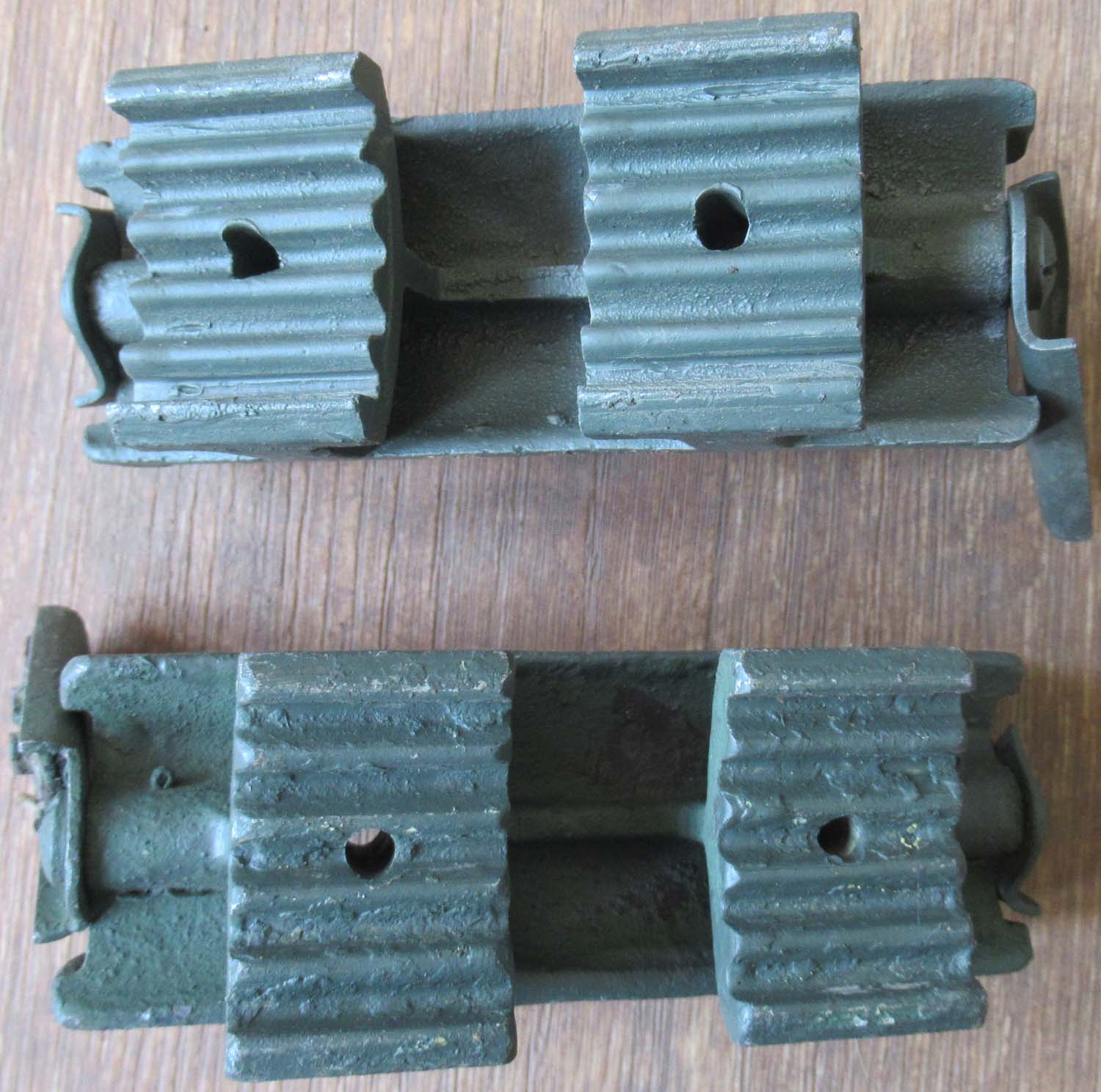
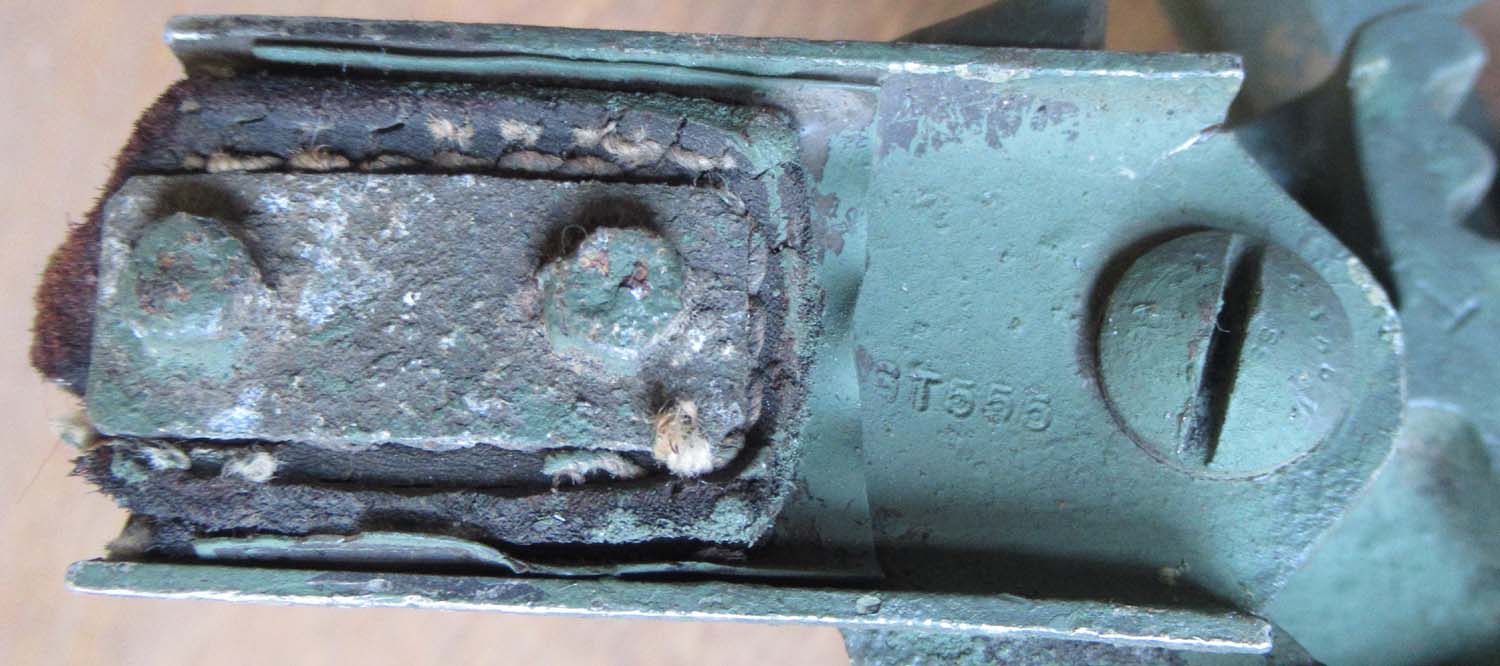
£210


|
|
Click on
the pictures to enlarge them.
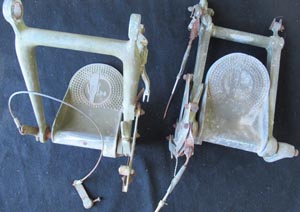

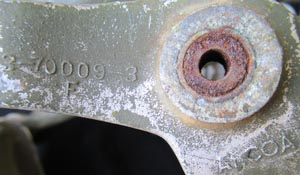

£995


Over seas buyers please
contact me for shipping
costs
|
Vultree
Vengeance Rudder pedals 2 (Cont pg2 No 5)
This is a complete set of
rudder pedals from a Vultree Vengeance in good condition
please enlarge the pictures.
Seen below
left the Vultree Vengeance
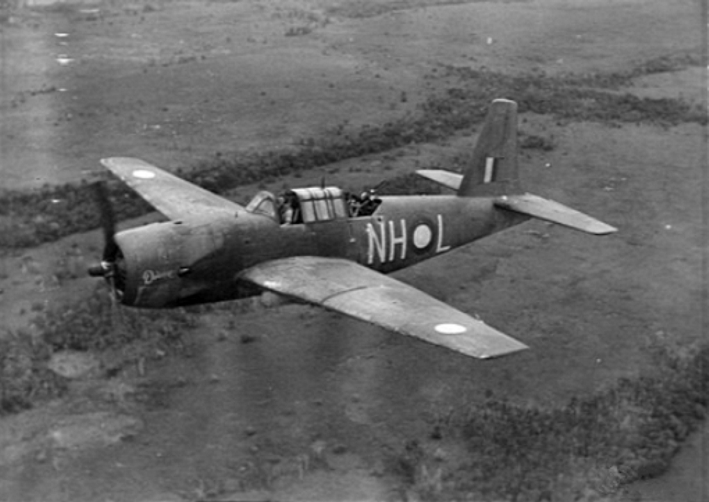 .jpg)
Above right
the rudder pedals in situ in a Vultree.
Click on the
pictures to enlarge them
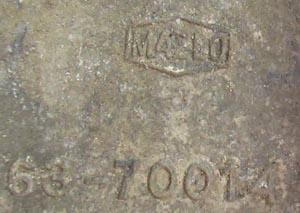  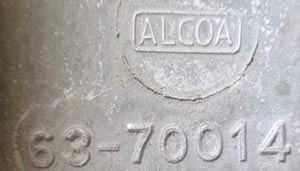

The Vultee A-31 Vengeance was an American dive bomber of
World War II, built by Vultee Aircraft. A modified version
was designated A-35.
The Vengeance was not used operationally by the United
States, but was operated as a front-line aircraft by the
British Royal Air Force, the Royal Australian Air Force, and
the Indian Air Force in Southeast Asia and the Southwest
Pacific.
The A-31 remained in service with U.S. units until 1945,
primarily in a target-tug role.
By the time that Britain had received large numbers of
Vengeances, its opinion on the usefulness of specialised
dive bombers had changed.
As
the Battle of Britain and operations over North Africa had
shown the dive bomber to be vulnerable to fighter attack, it
rejected the Vengeance for use over Western Europe or the
Mediterranean.
It was decided to use the Vengeance in the Burma Theatre to
carry out dive-bombing operations in close support of
British and Indian troops in the jungles
|
|
Click on
the pictures to enlarge them.
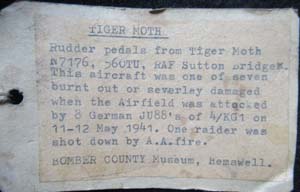
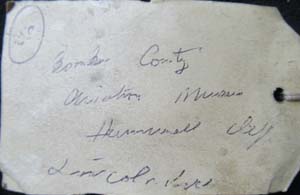


£495


|
Rudder pedals
from Tiger Moth N7176 56OTU RAF Sutton Bridge 1 (Cont
pg2 No 4)
These are a pair of rudder pedals
from Tiger Moth N7176 56OTU RAF Sutton Bridge.
This aircraft was one of
seven either burnt out or severely damaged when the airfield
was attacked by 8 German JU88'S of 4/KG1 on 11-12 of May
1941.
One raider was shot down by
A.A fire.
Click on the
pictures to enlarge them
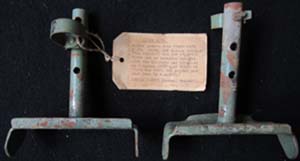 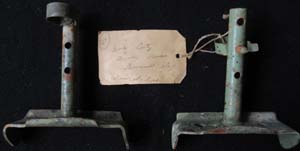
Seen in situ
under in a Tiger Moth
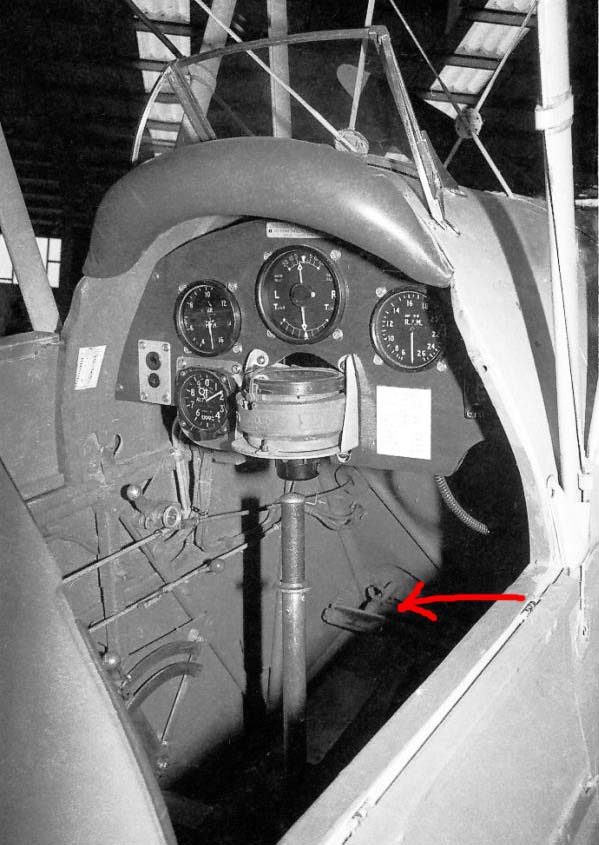
|
|
Click on
the pictures to enlarge them

£395


Over seas buyers please
contact me for shipping
costs
|
Vultree Vengeance Rudder pedal
3 (Cont pg2 No 3)
This is a single
rudder pedal from a Vultree Vengeance in good condition
please enlarge the pictures.
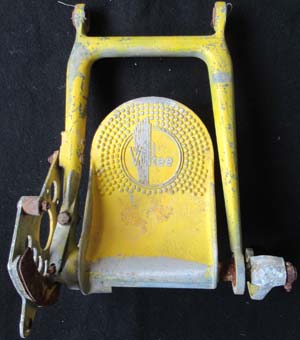 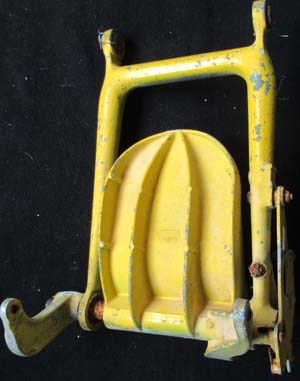
Click on the
pictures to enlarge them
The Vultee A-31 Vengeance was an American dive bomber of
World War II, built by Vultee Aircraft. A modified version
was designated A-35.
The Vengeance was not used operationally by the United
States, but was operated as a front-line aircraft by the
British Royal Air Force, the Royal Australian Air Force, and
the Indian Air Force in Southeast Asia and the Southwest
Pacific.
The A-31 remained in service with U.S. units until 1945,
primarily in a target-tug role.
By the time that Britain had received large numbers of
Vengeances, its opinion on the usefulness of specialised
dive bombers had changed.
As
the Battle of Britain and operations over North Africa had
shown the dive bomber to be vulnerable to fighter attack, it
rejected the Vengeance for use over Western Europe or the
Mediterranean.
It was decided to use the Vengeance in the Burma Theatre to
carry out dive-bombing operations in close support of
British and Indian troops in the jungles
|
|
Click on
the pictures to enlarge them.
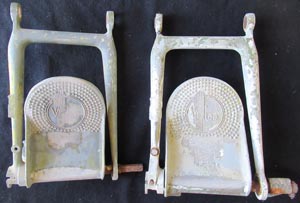

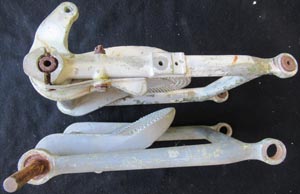
£895


Over seas buyers please
contact me for shipping
costs
|
Vultree
Vengeance Rudder pedals 1 (Cont pg2 No 2)
This is a set of
rudder pedals from a Vultree Vengeance in good condition
please enlarge the pictures.
Seen below
left the Vultree Vengeance
.jpg) .jpg)
Click on the
pictures to enlarge them
 
Above right
the rudder pedals in situ in a Vultree.
The Vultee A-31 Vengeance was an American dive bomber of
World War II, built by Vultee Aircraft. A modified version
was designated A-35.
The Vengeance was not used operationally by the United
States, but was operated as a front-line aircraft by the
British Royal Air Force, the Royal Australian Air Force, and
the Indian Air Force in Southeast Asia and the Southwest
Pacific.
The A-31 remained in service with U.S. units until 1945,
primarily in a target-tug role.
By the time that Britain had received large numbers of
Vengeances, its opinion on the usefulness of specialised
dive bombers had changed.
As
the Battle of Britain and operations over North Africa had
shown the dive bomber to be vulnerable to fighter attack, it
rejected the Vengeance for use over Western Europe or the
Mediterranean.
It was decided to use the Vengeance in the Burma Theatre to
carry out dive-bombing operations in close support of
British and Indian troops in the jungles
|
|
Click on
the pictures to enlarge them.
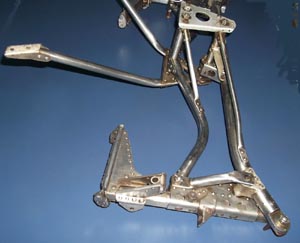

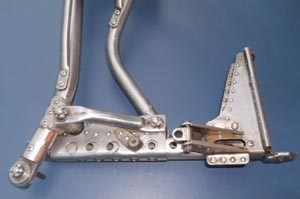
£1995


International
buyers
email for shipping cost
|
Fairey Swordfish
Rudder Redals (Cont pg2 No 1)
This is a complete set of
rudder pedals from a Fairey Swordfish they are not crash
damaged and are straight made in stainless they are
corrosion free and in perfect condition. I see no reason why
they should not be capable of flying again subject to the required checks.
These are super rare and a stunning piece of engineering.
Click on the
pictures to enlarge them
   
The Swordfish evolved
from the prototype Fairey TSR.II (Torpedo Spotter
Reconnaissance), designed by Marcel Lobelle and HE Chaplin
of the Fairey Aviation Company Ltd., first flew in 1934 and
entered service with No.825 Squadron in 1936.
In all, 2391
aircraft were built, the first 692 machines by Fairey
Aviation and the remainder under licence by Blackburn
Aircraft Company at their works at Sherburn-in-Elmet and
Brough, Yorkshire. In service the Blackburn-built aircraft
became unofficially known as "Blackfish".
Perhaps the most
remarkable aspect of this very distinguished aircraft was
its longevity. Although by all normal standards it was
already obsolete at the outbreak of WW2, it confounded
everyone by remaining in operational service throughout the
whole of the war, and thereby gained the distinction of
being the last British bi-plane to see active service.
Indeed, it outlasted its intended replacement, the Albacore,
which disappeared from front-line service in 1943.
  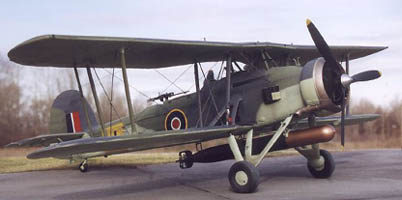
|
|
|

 |
|
|
